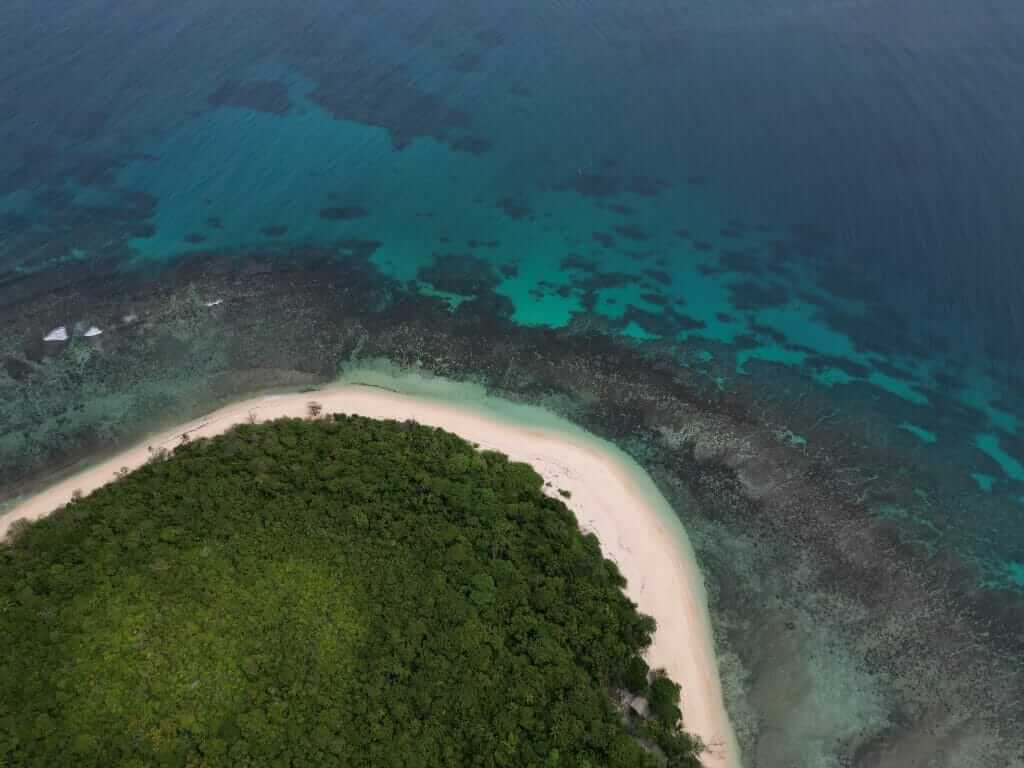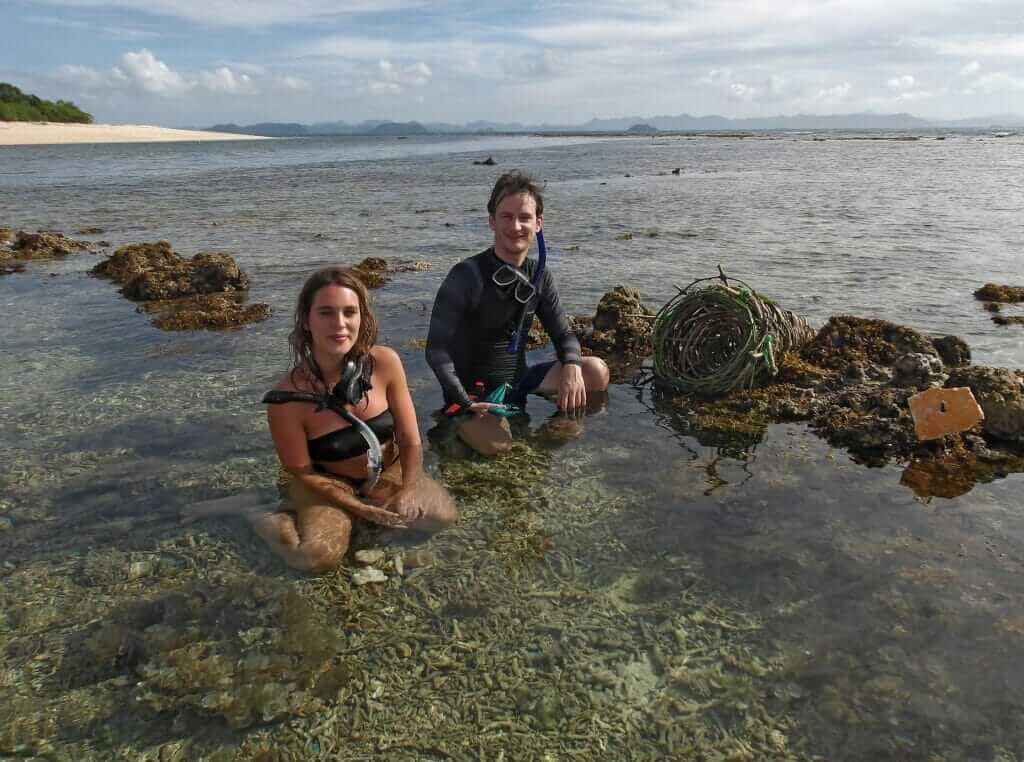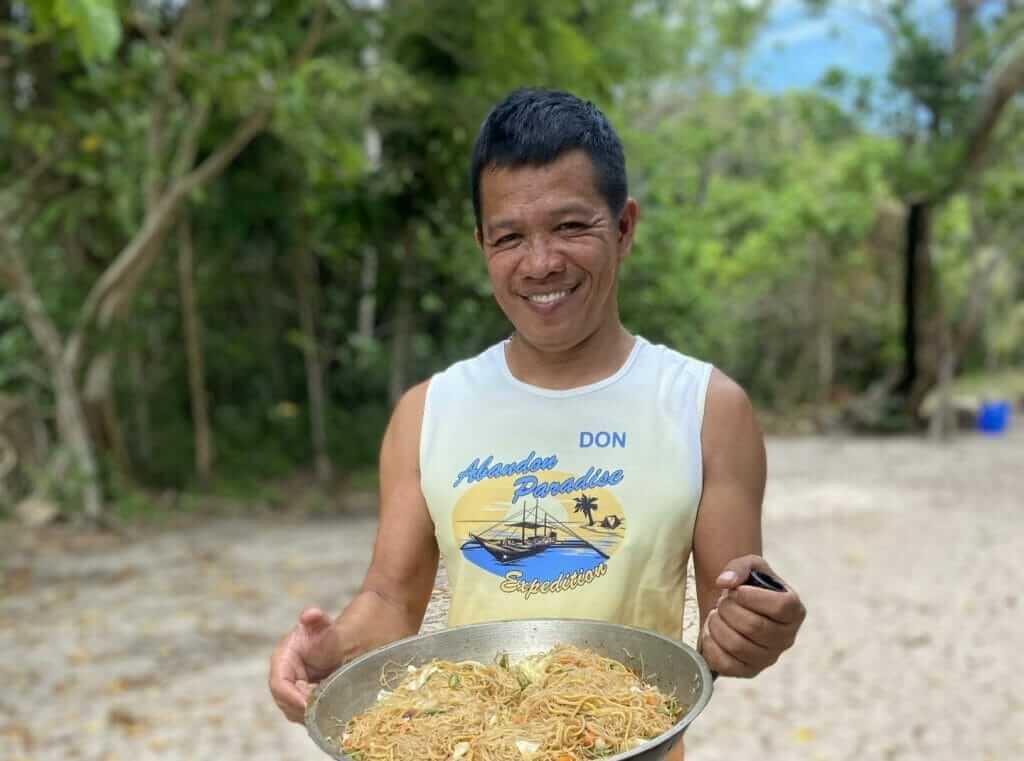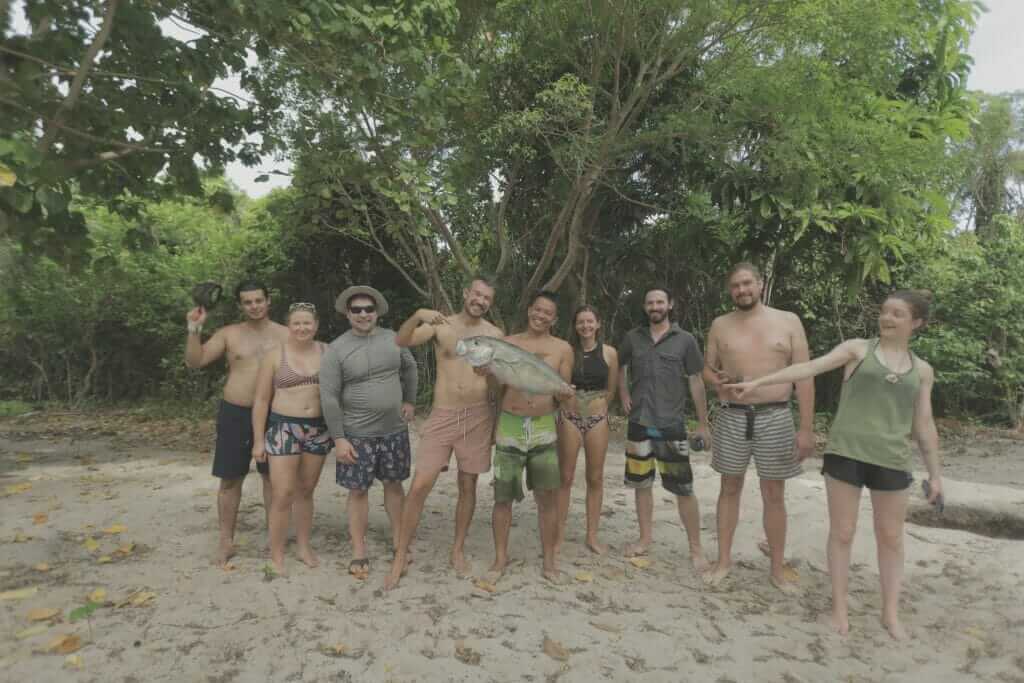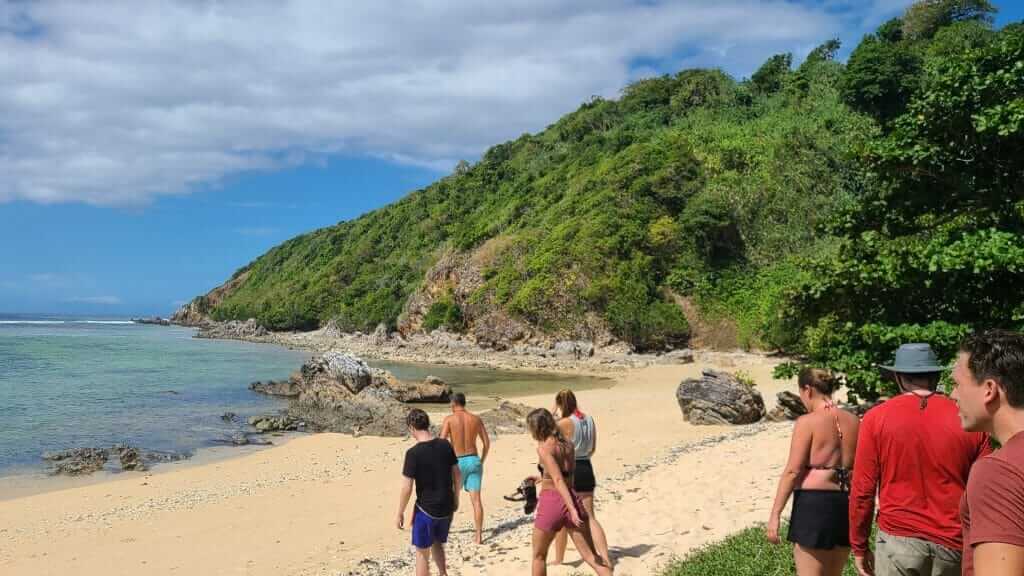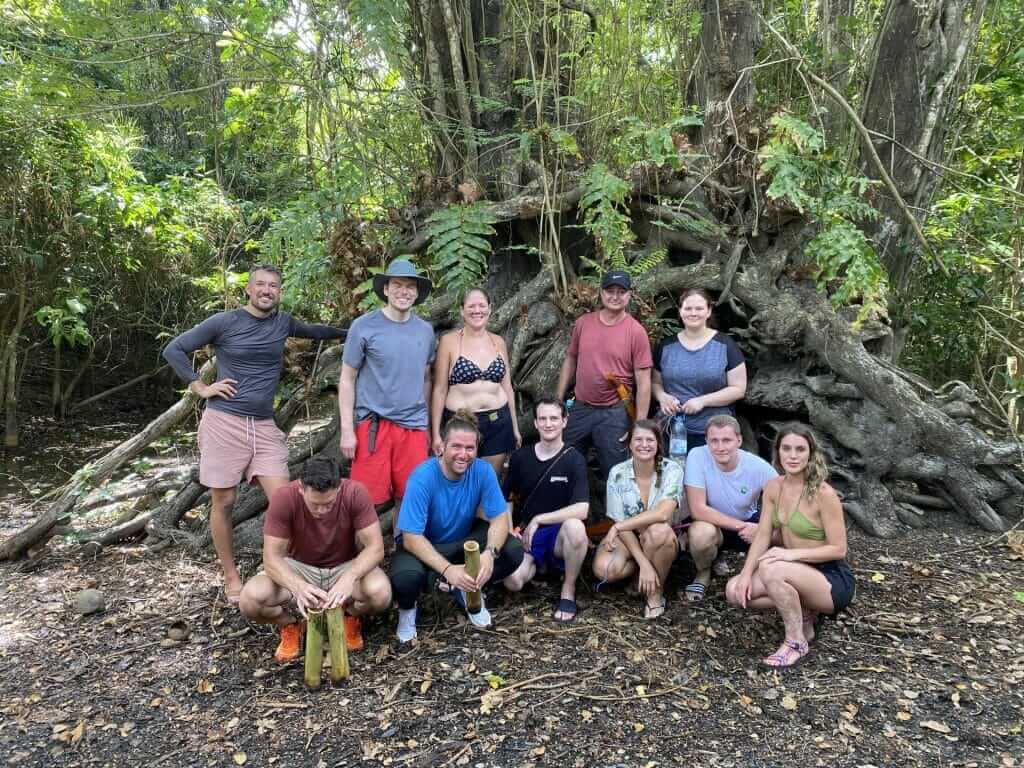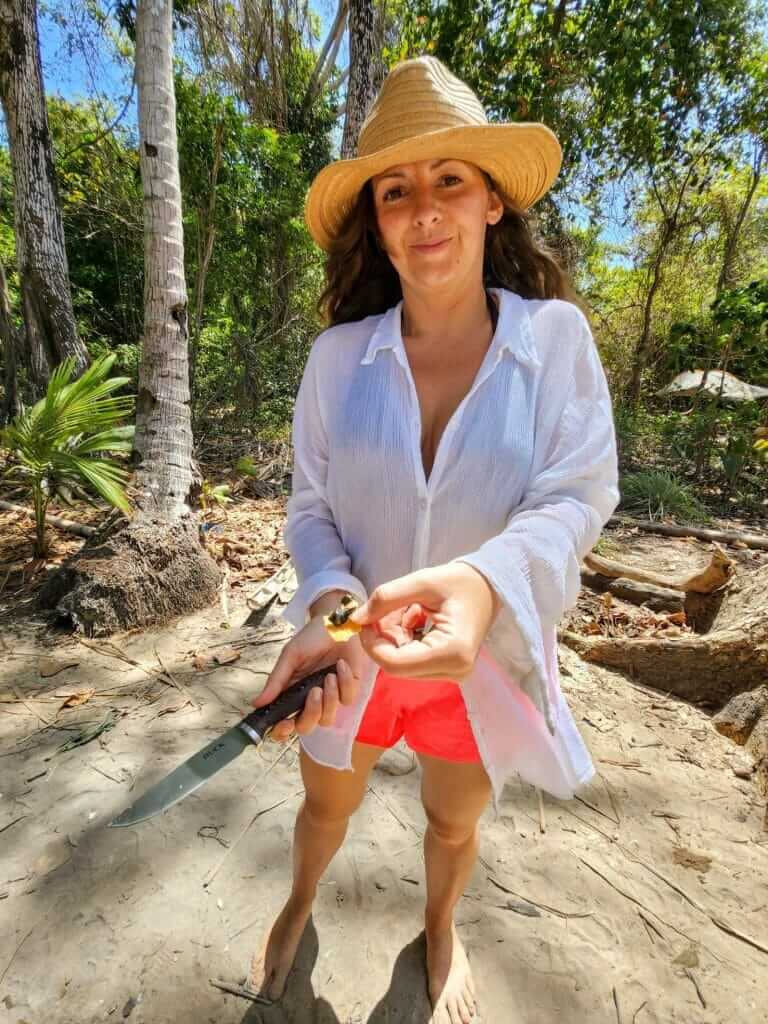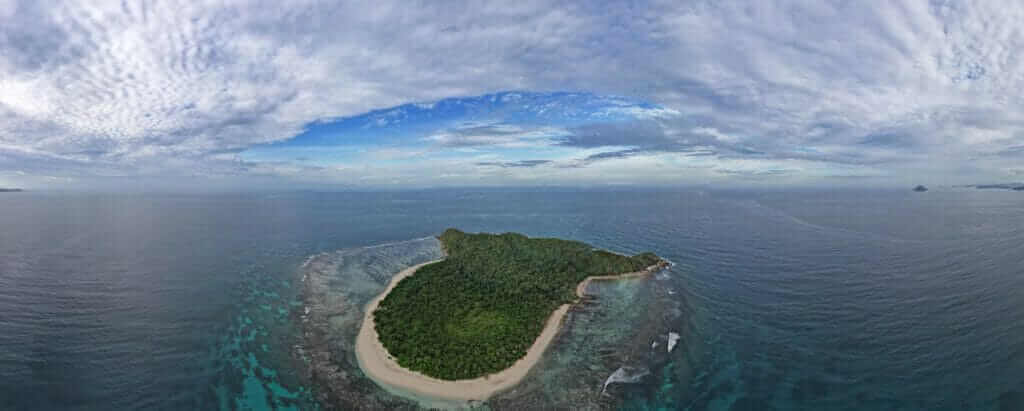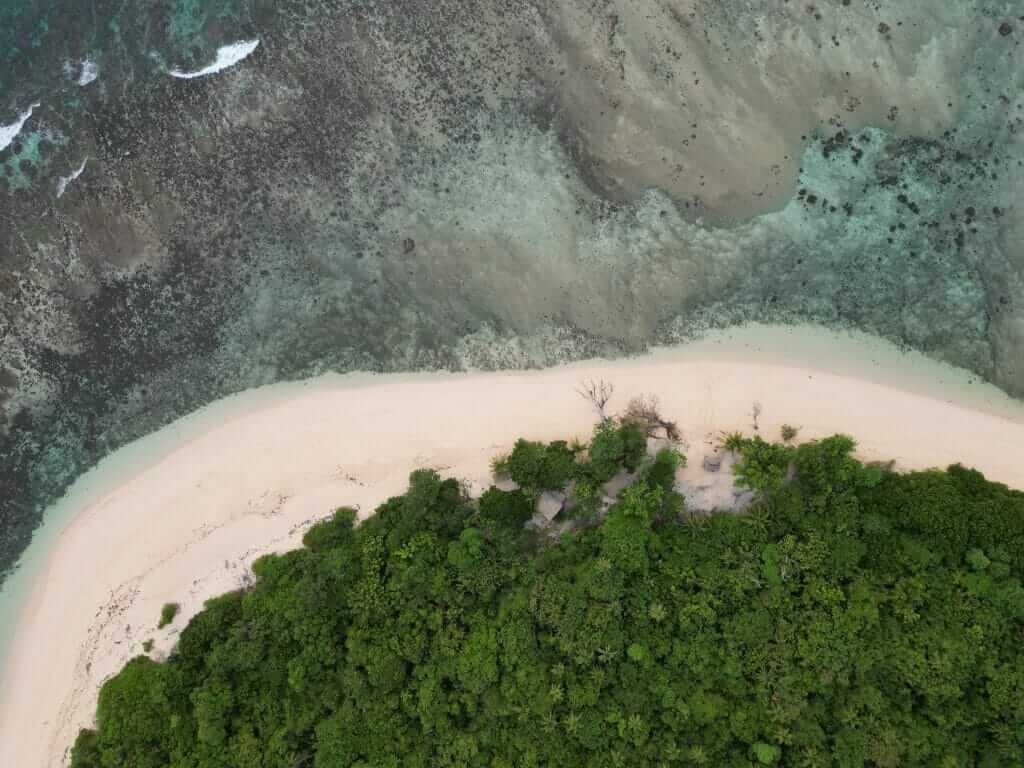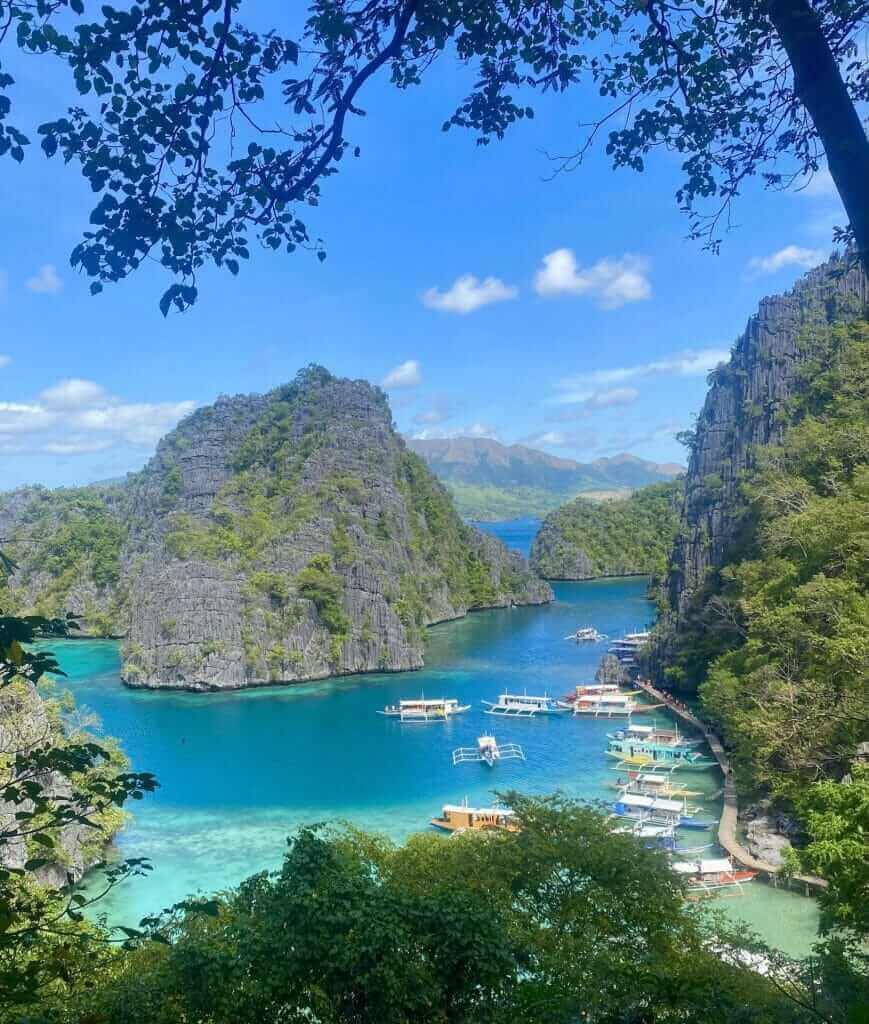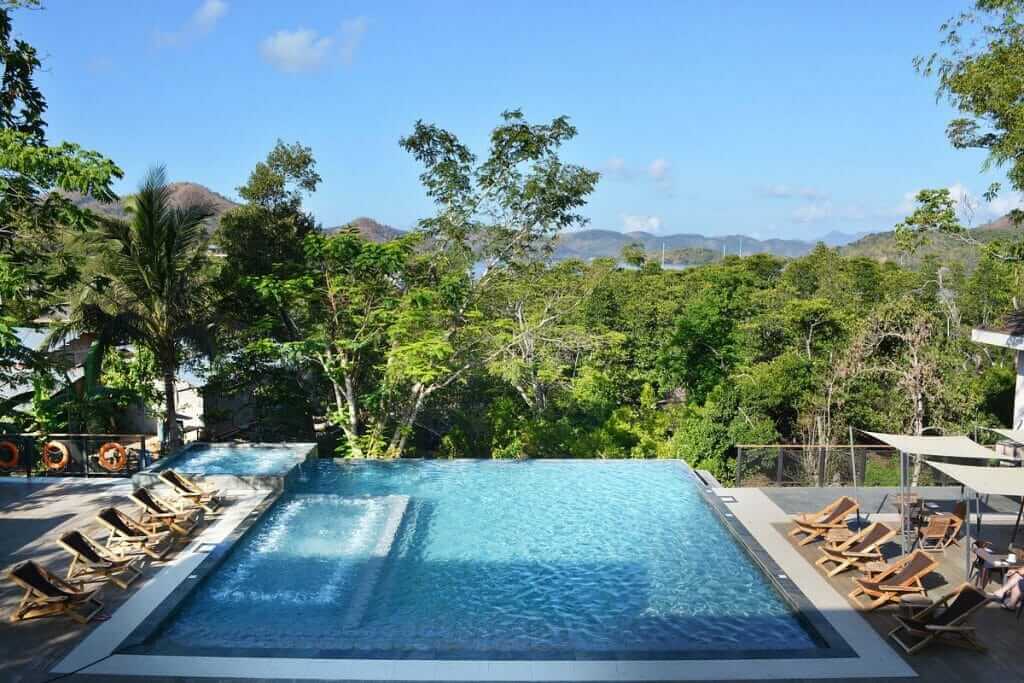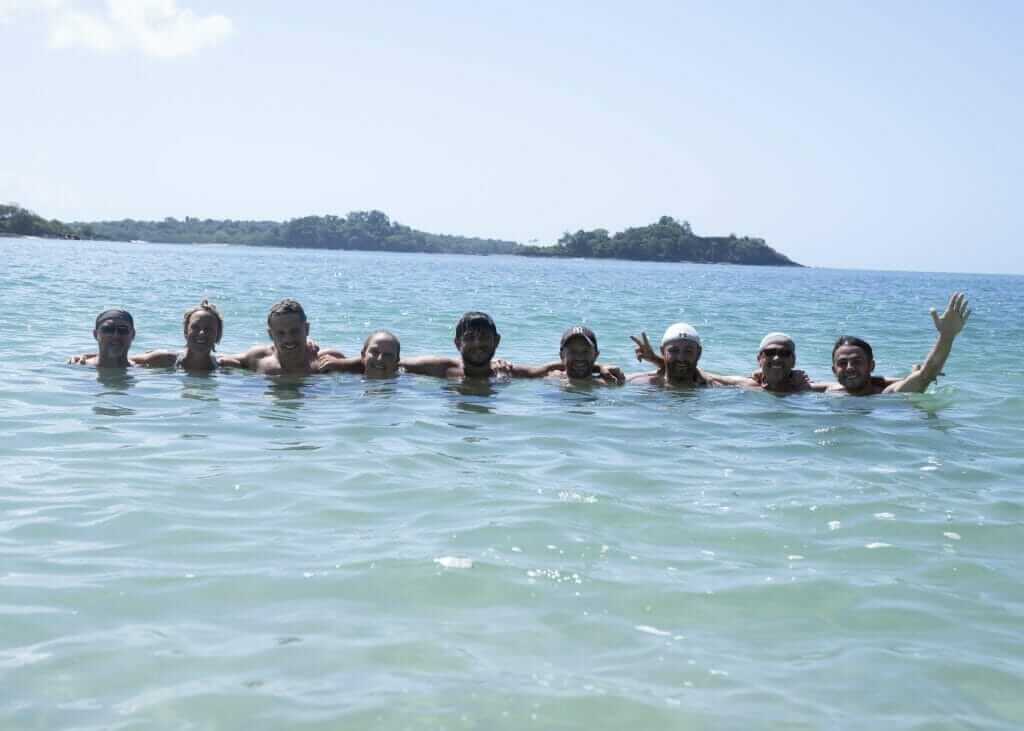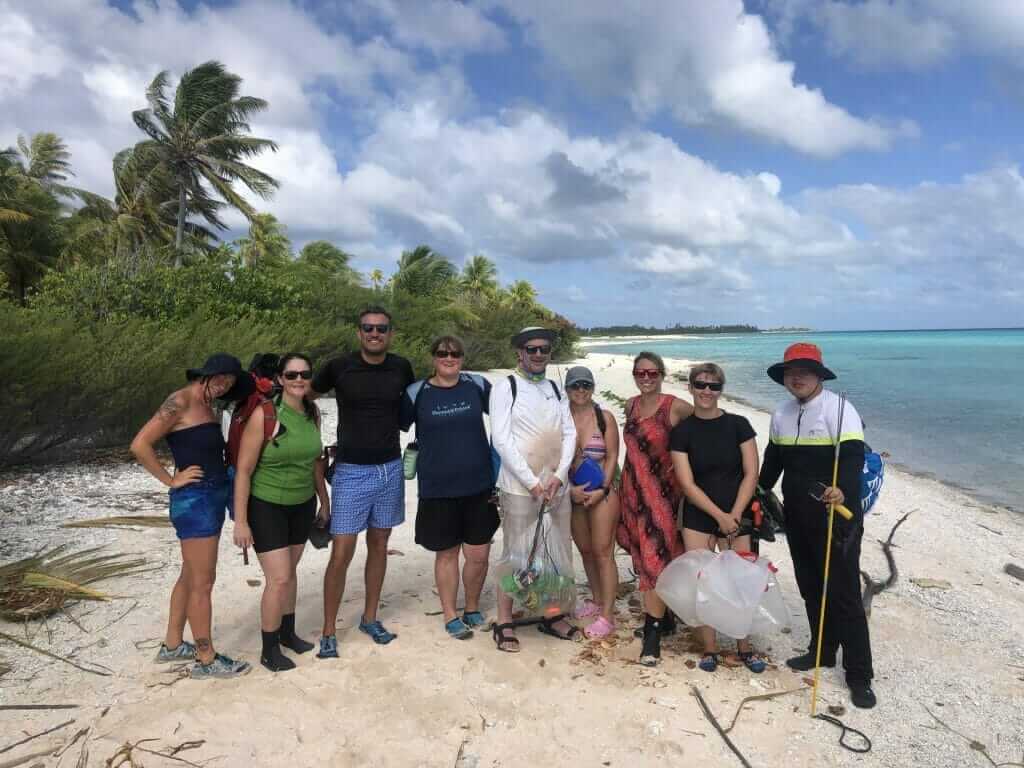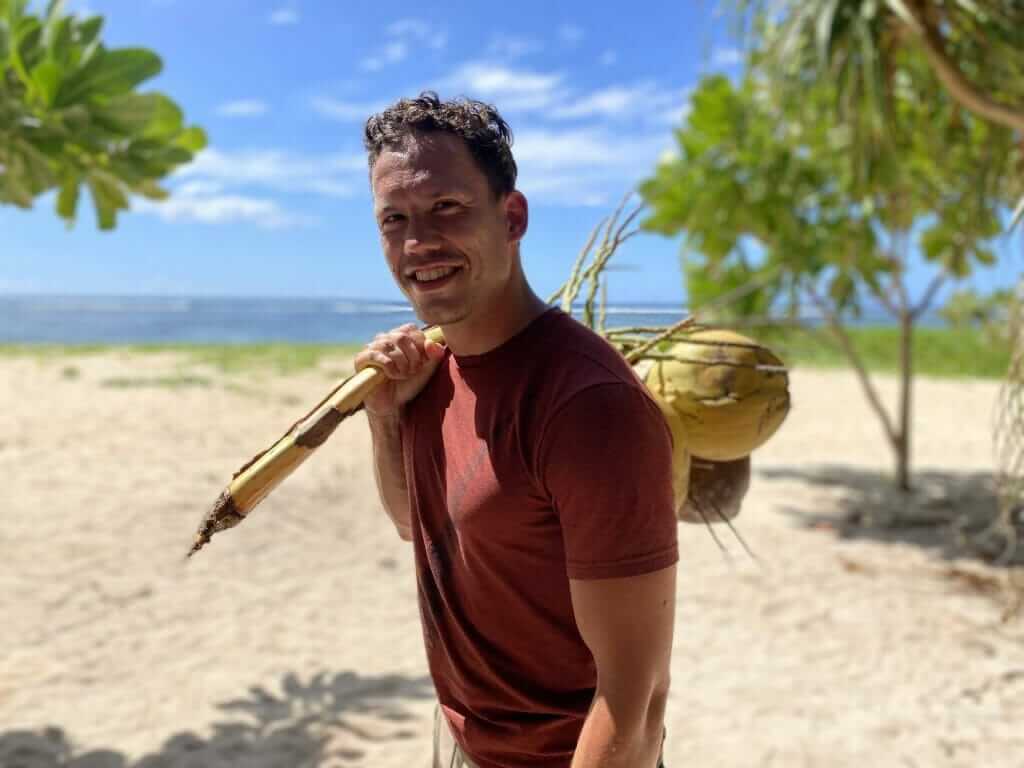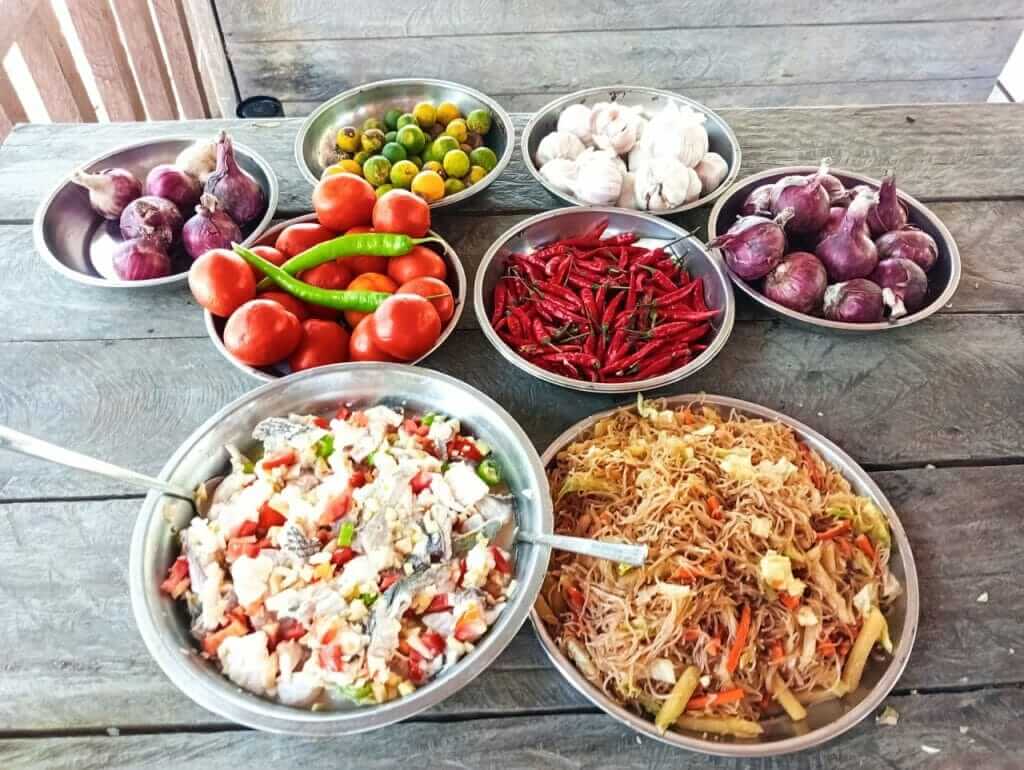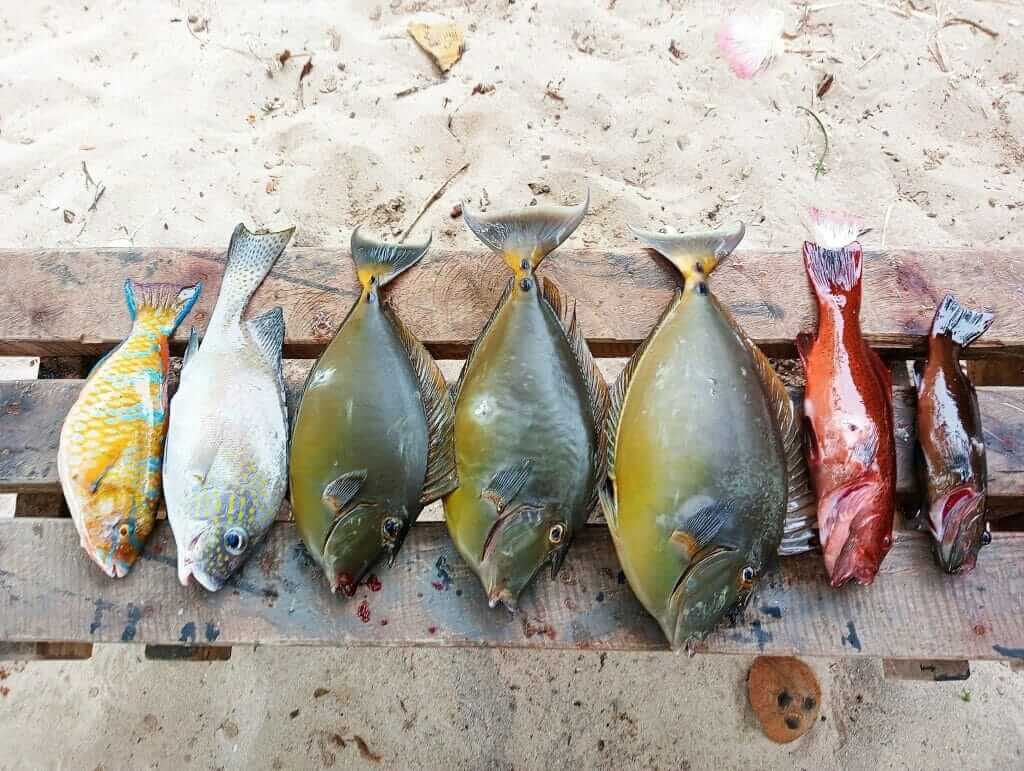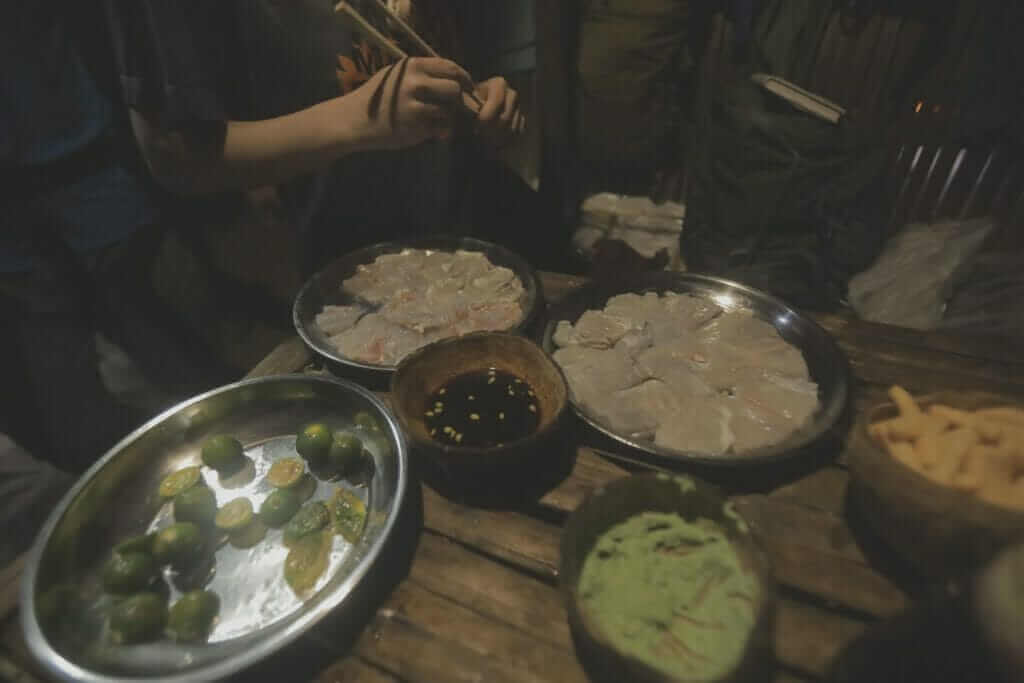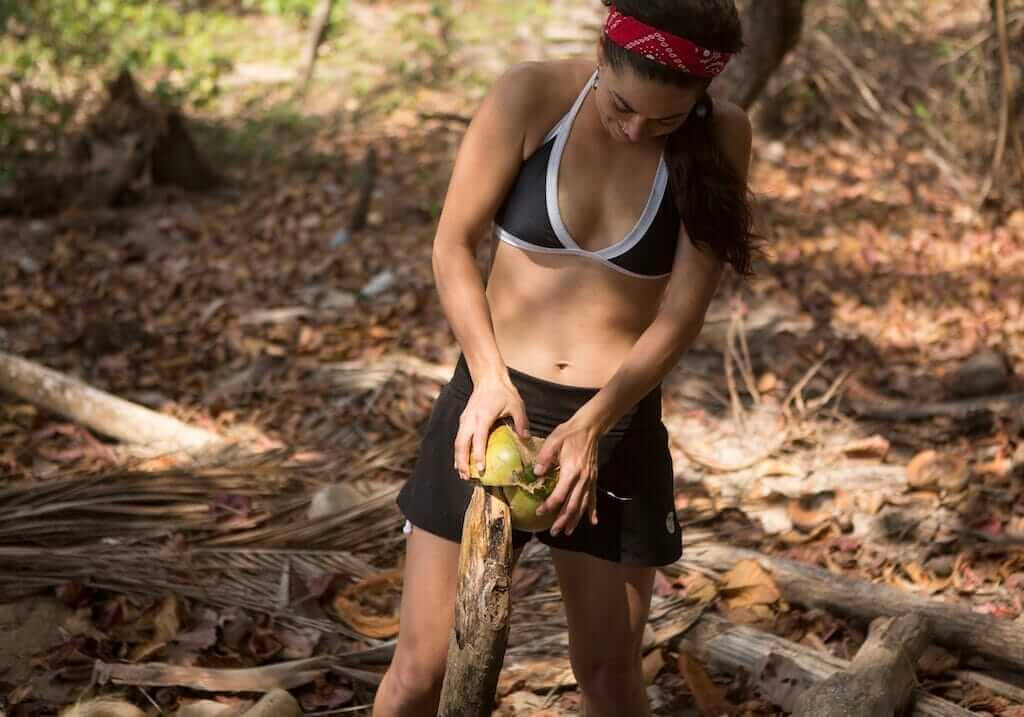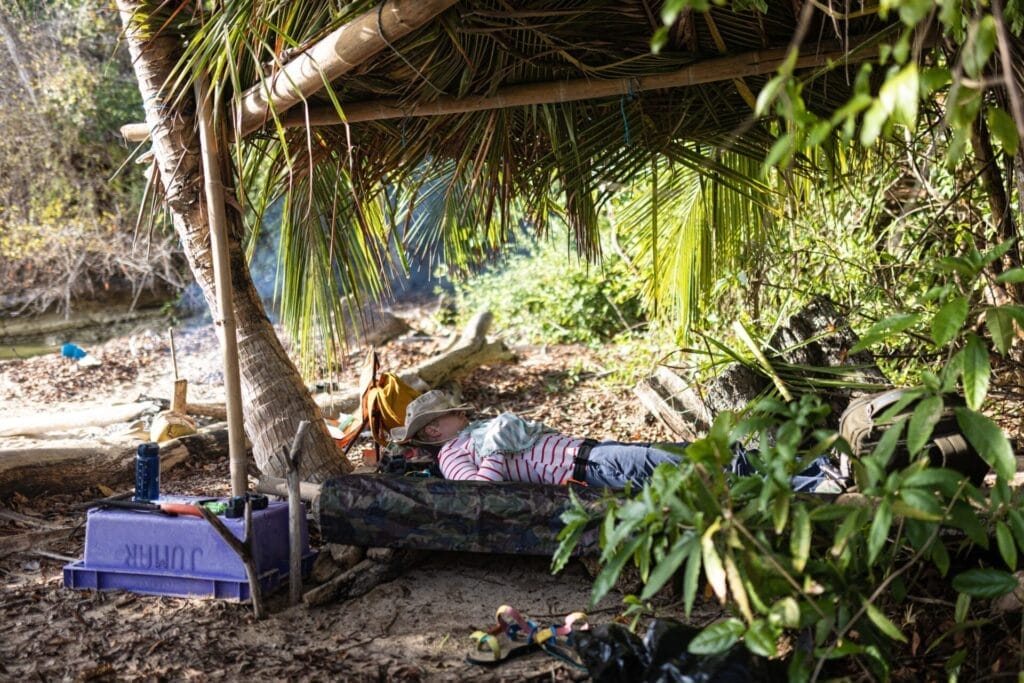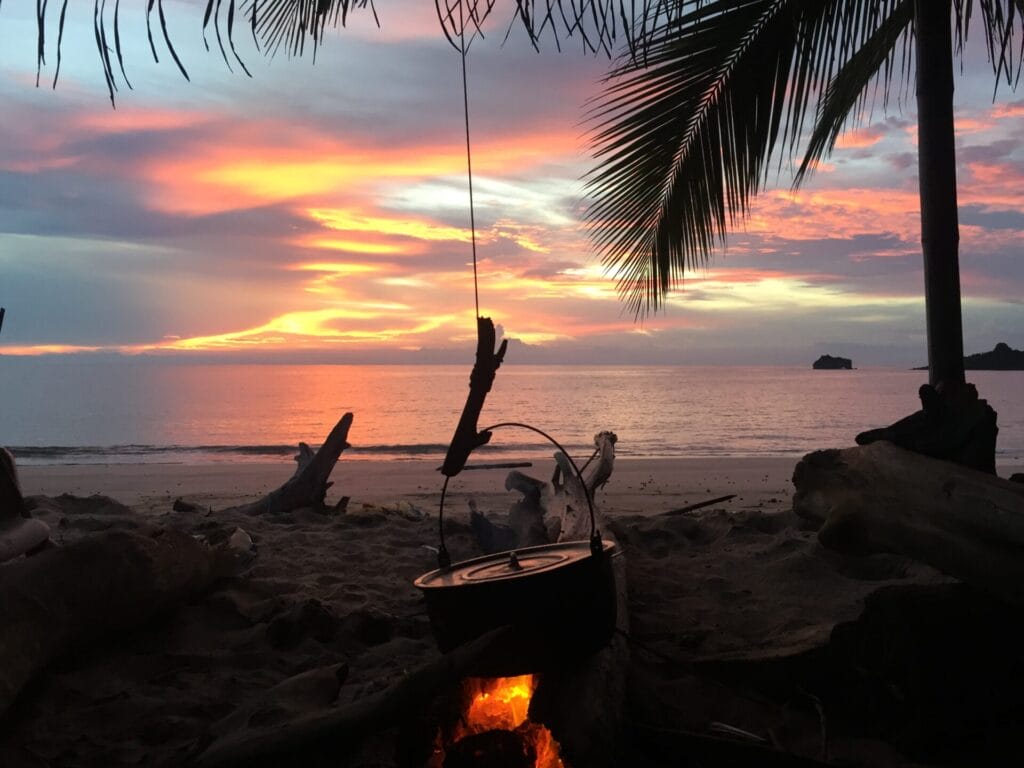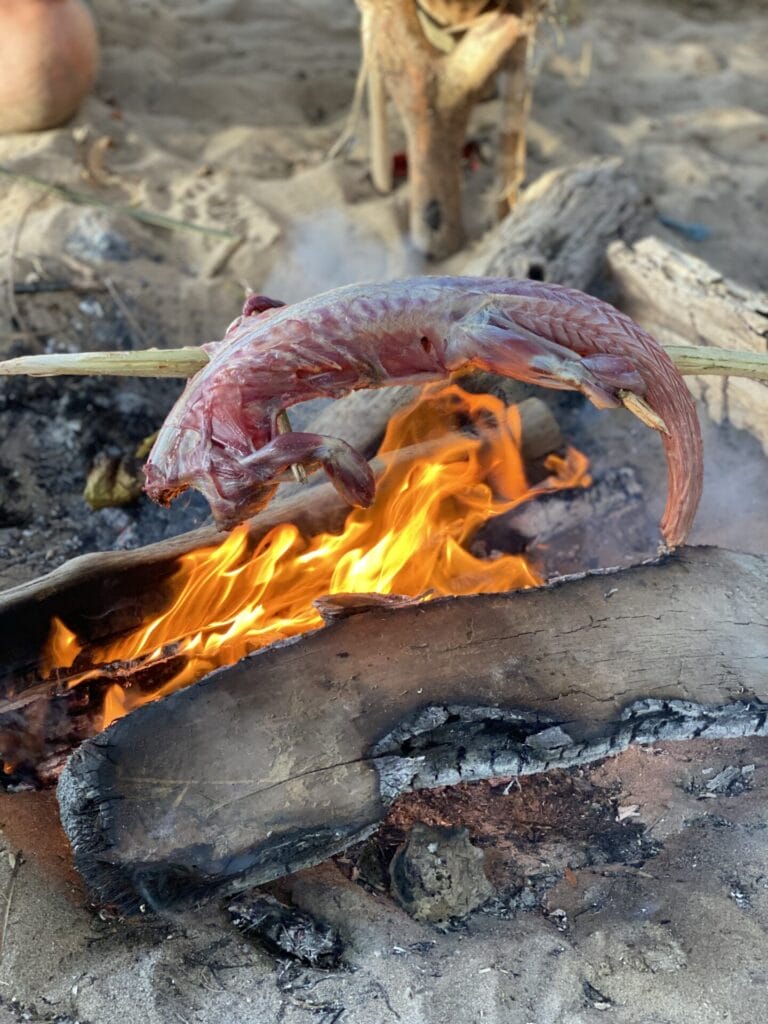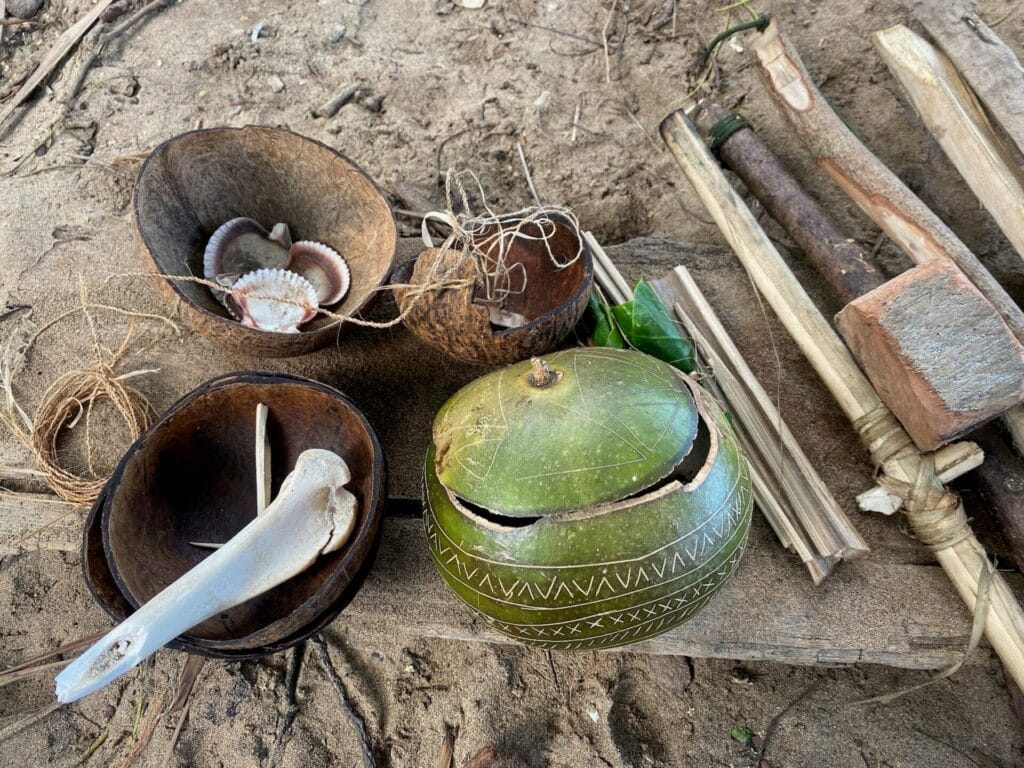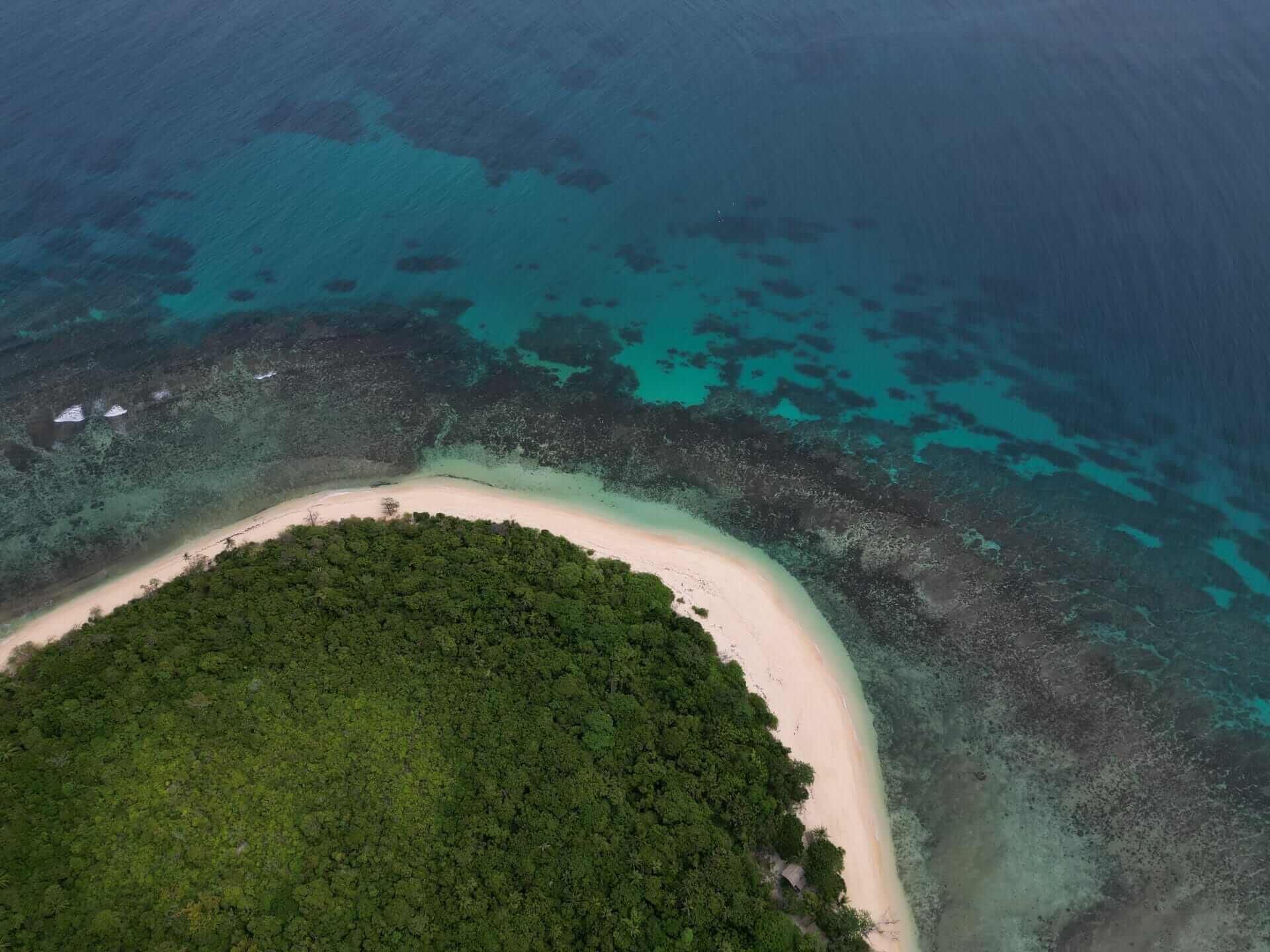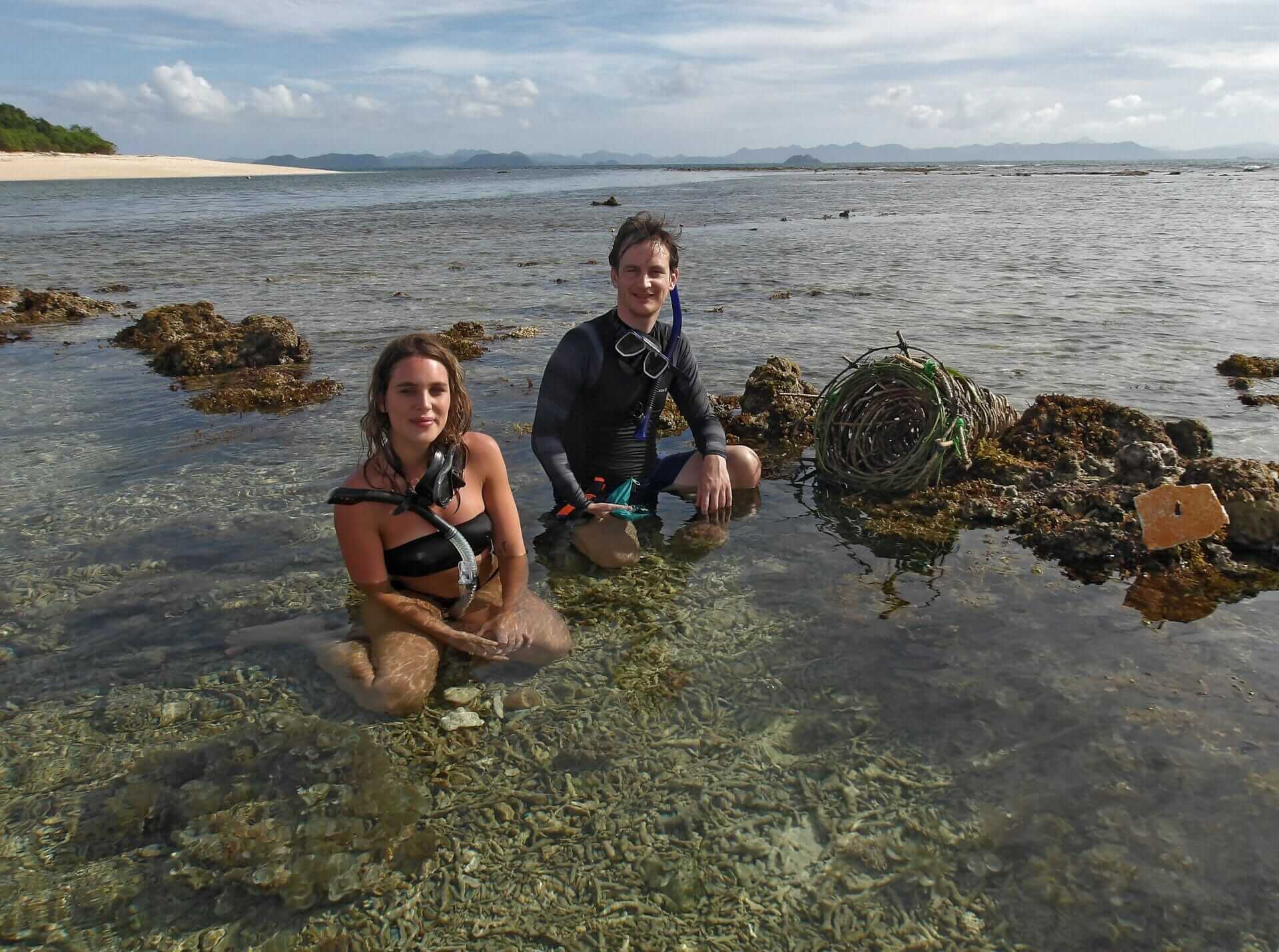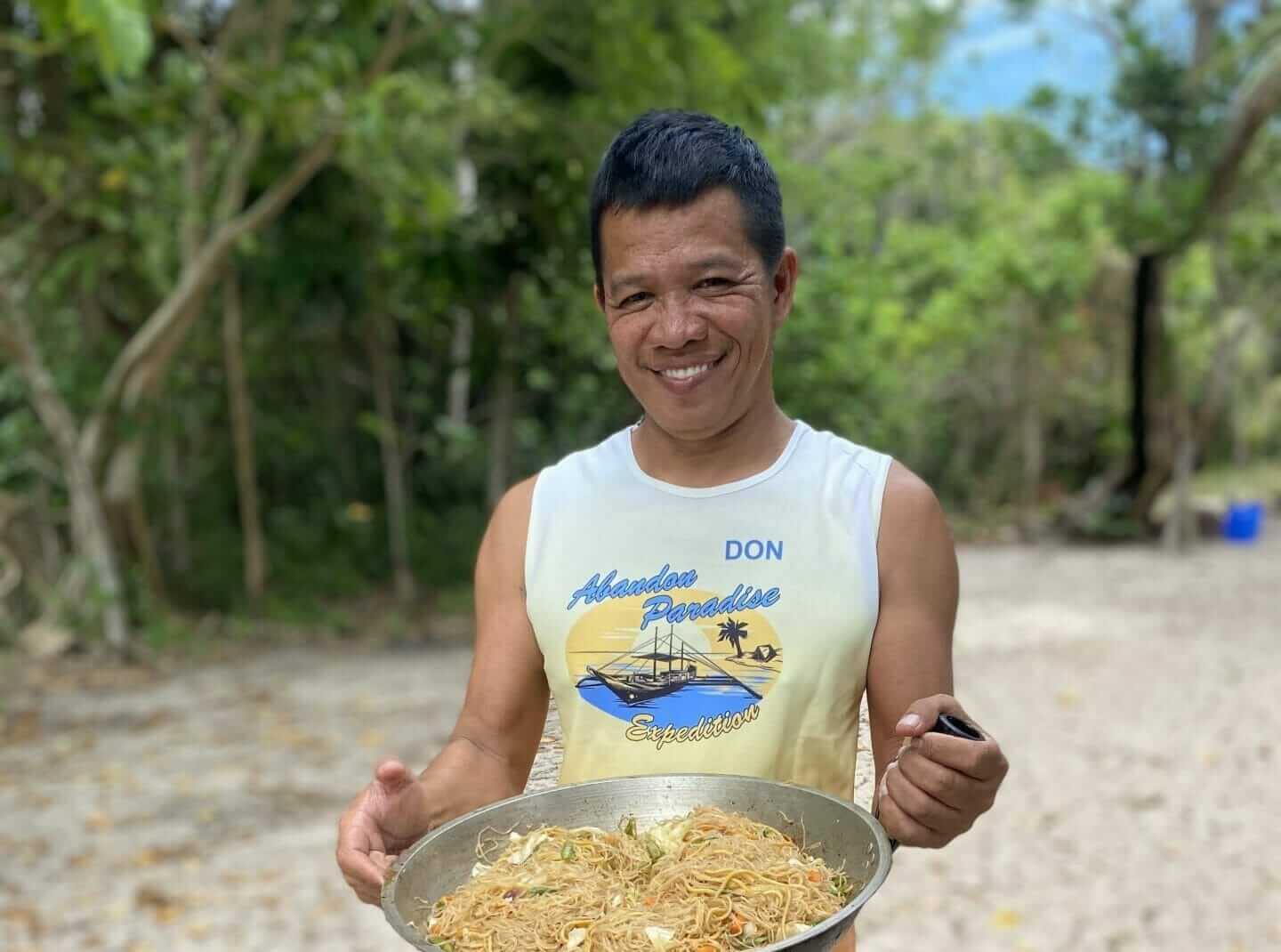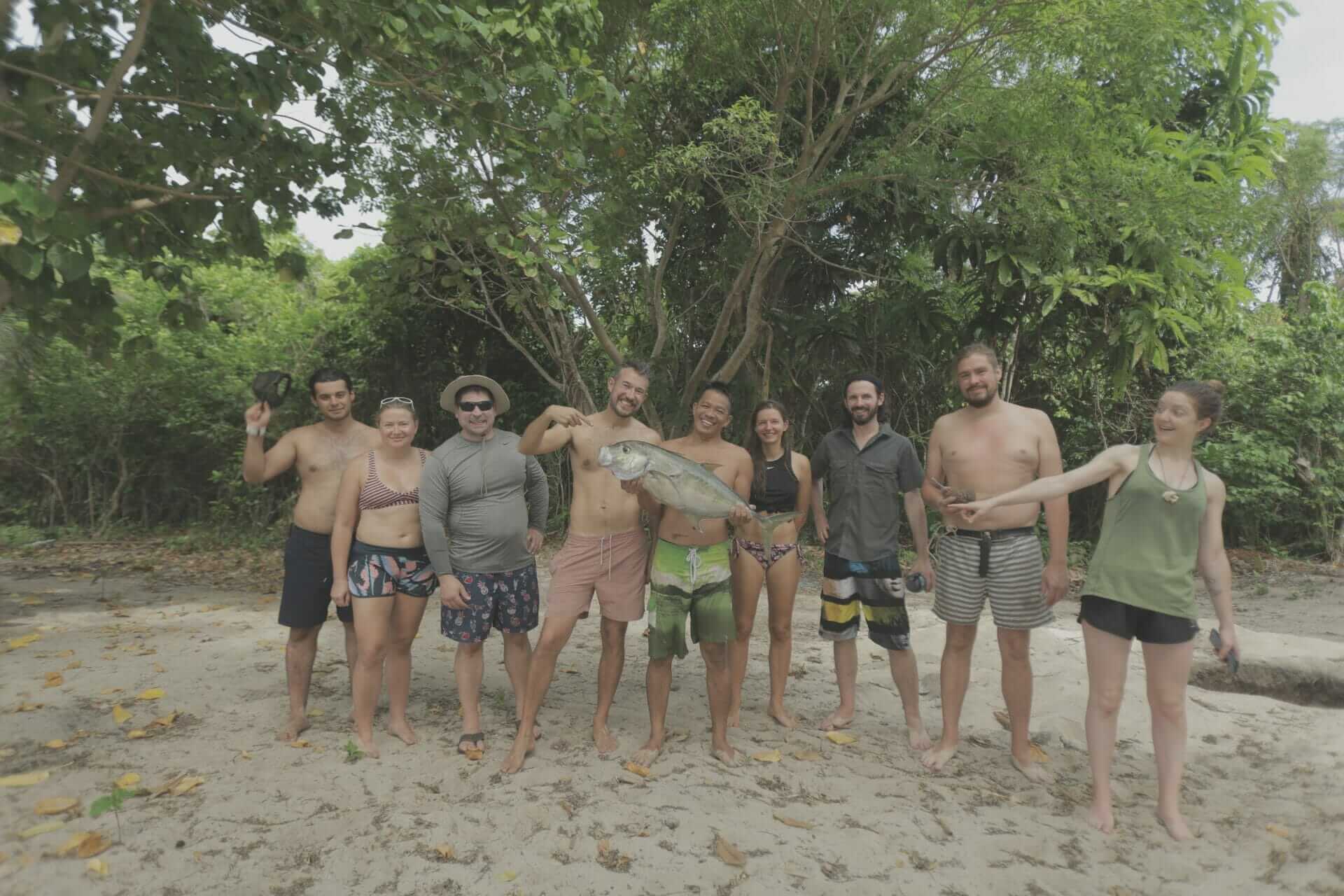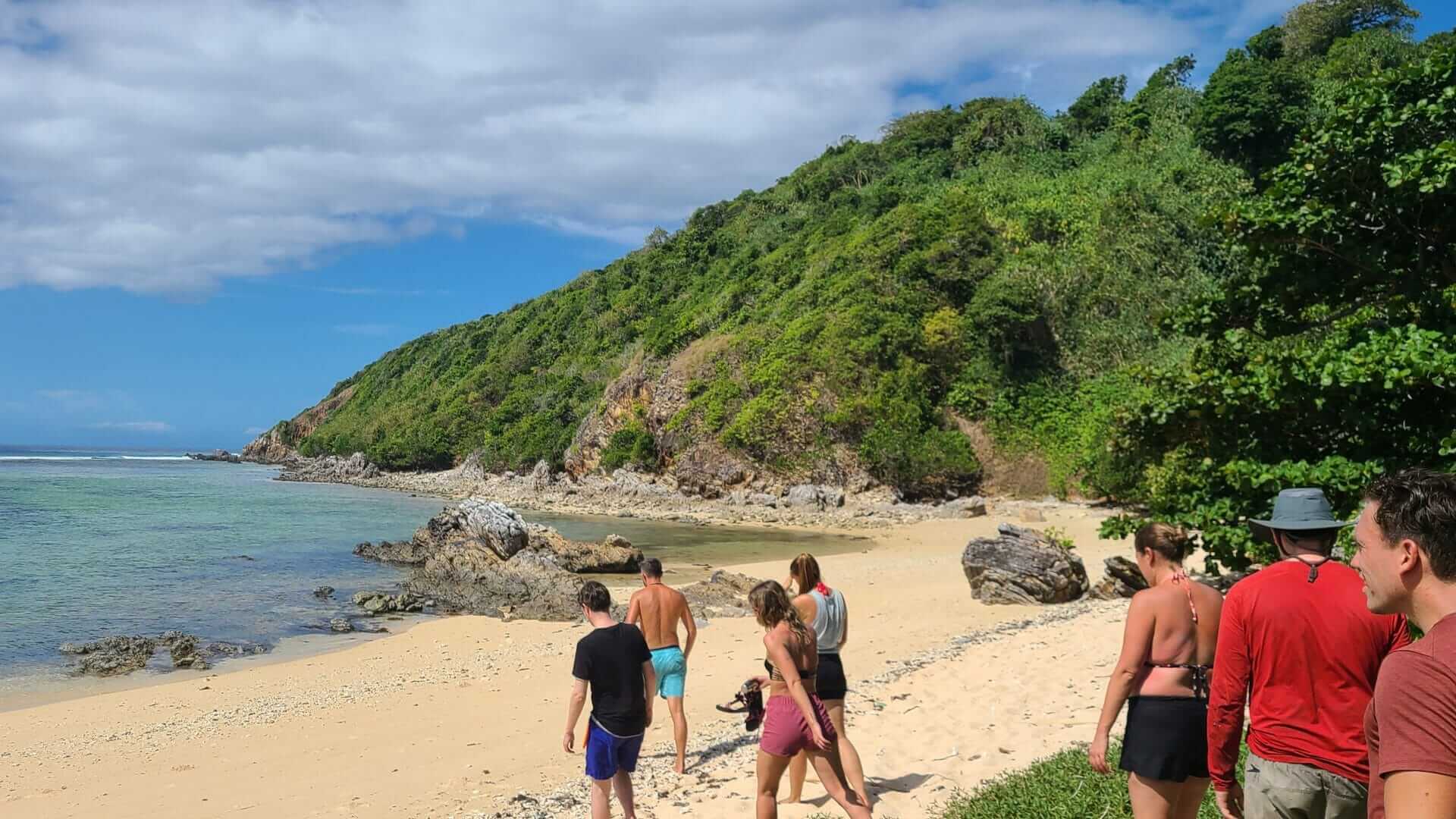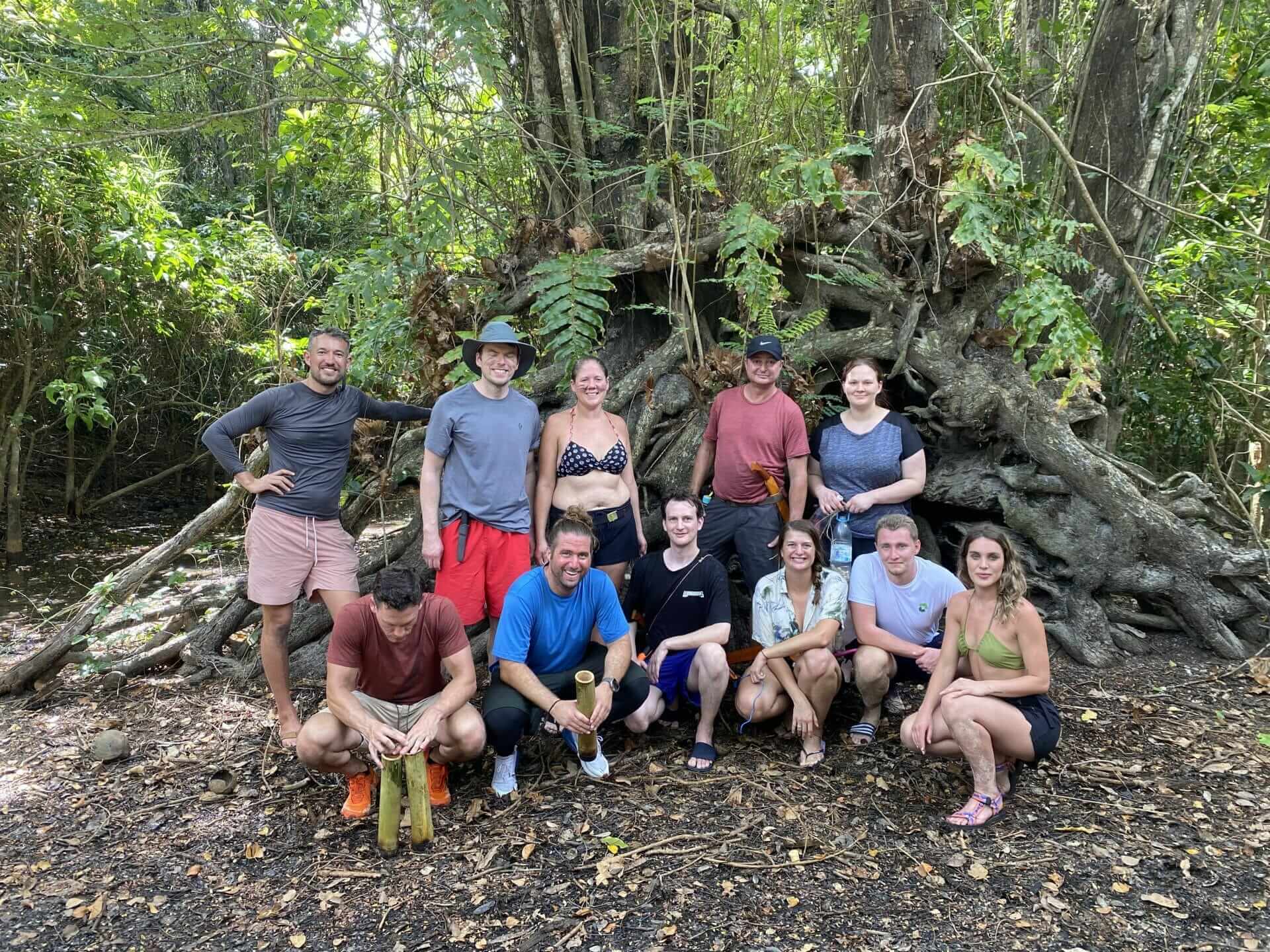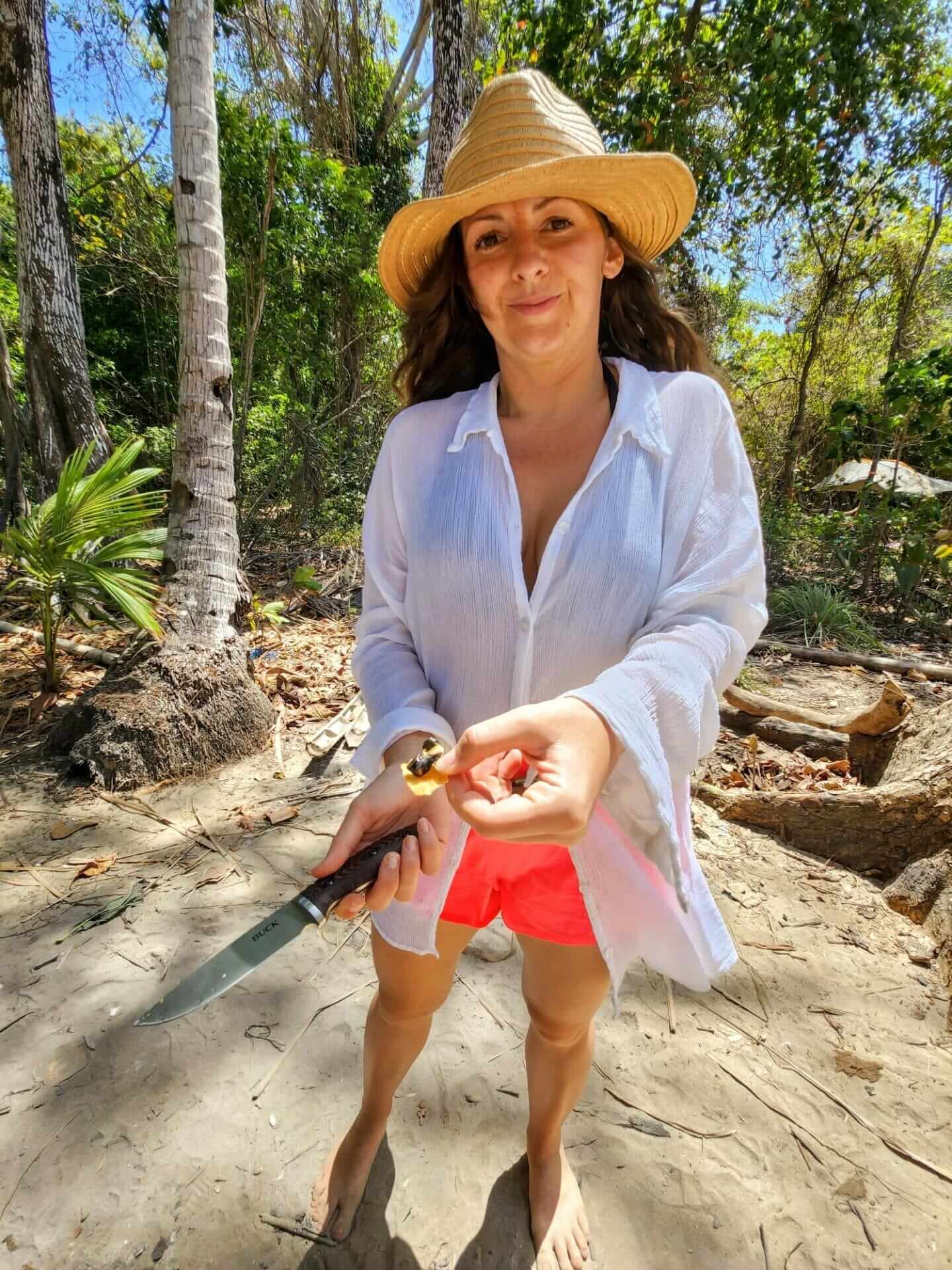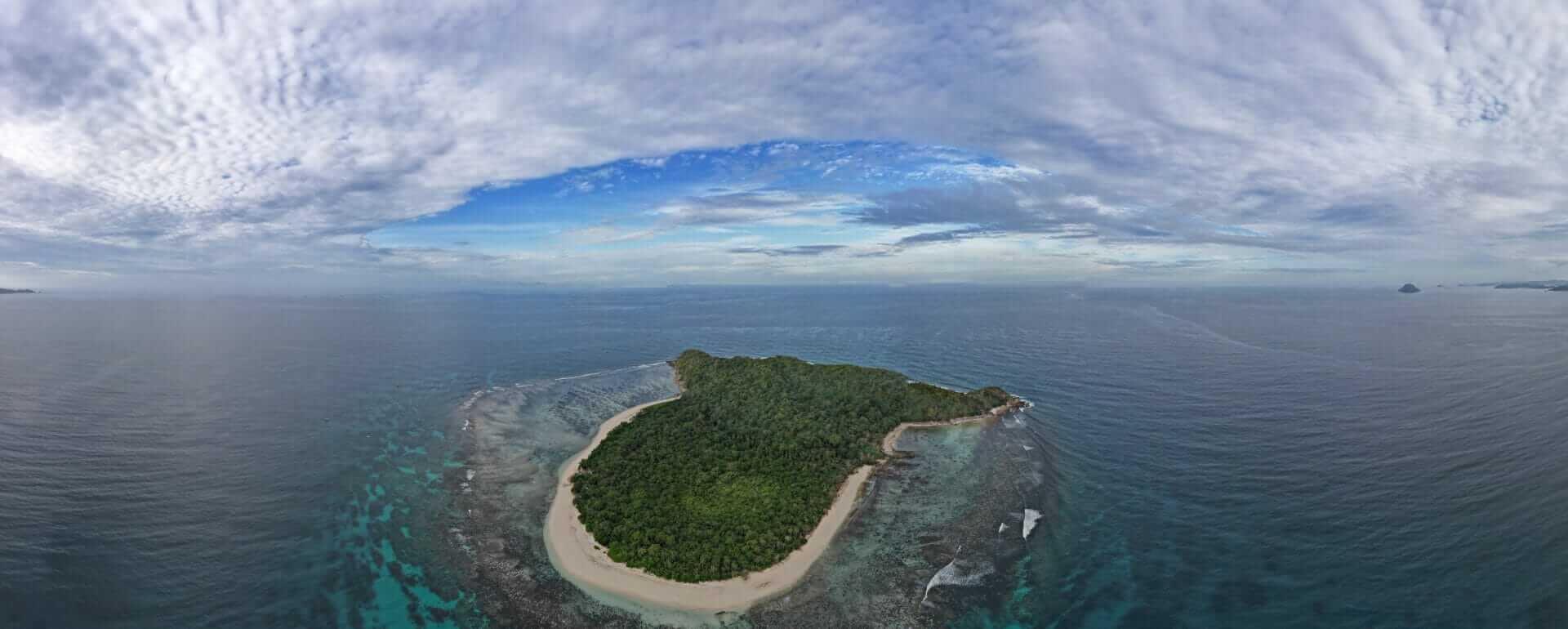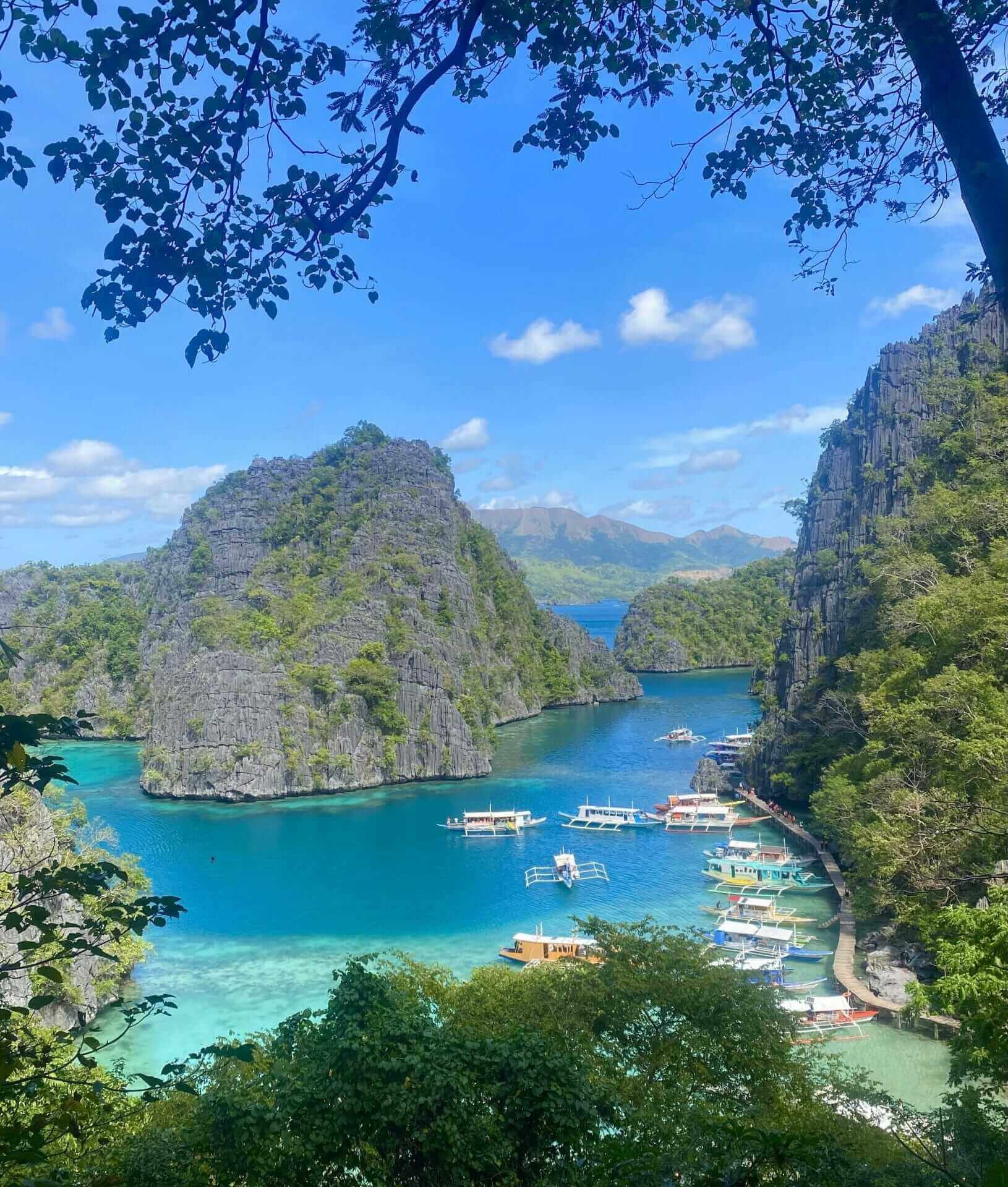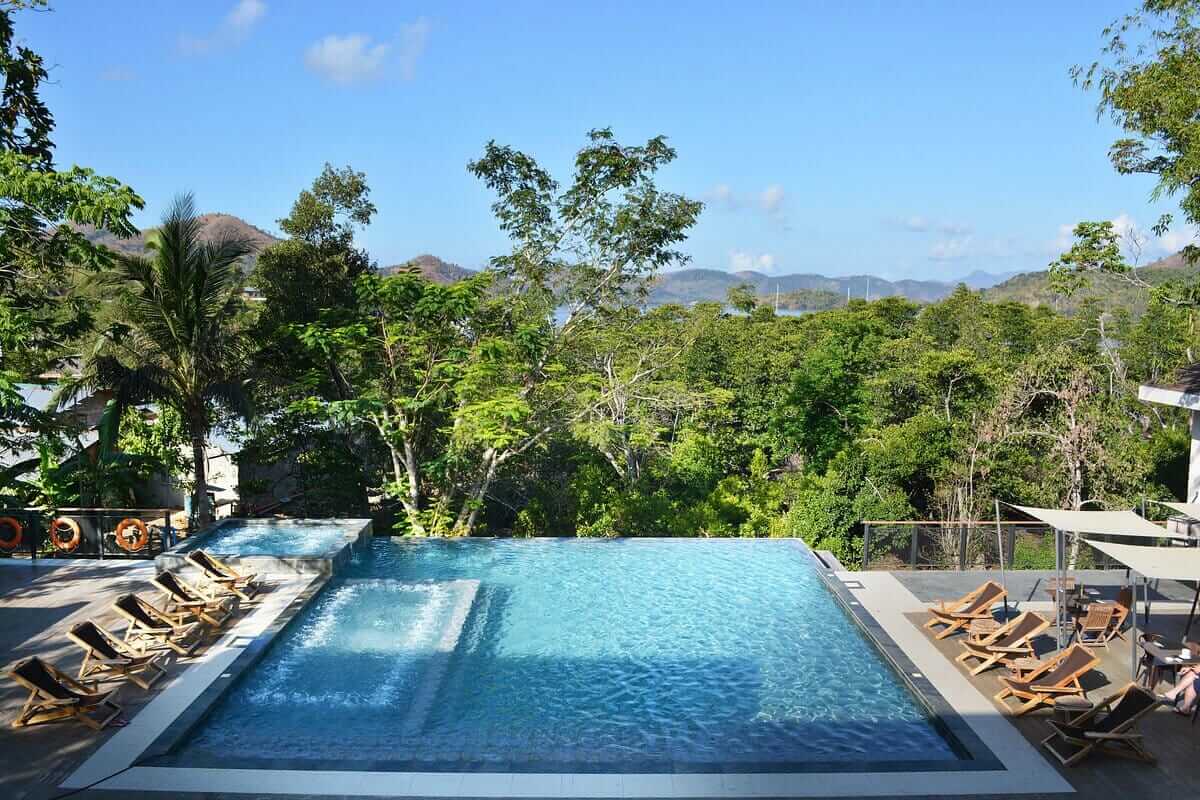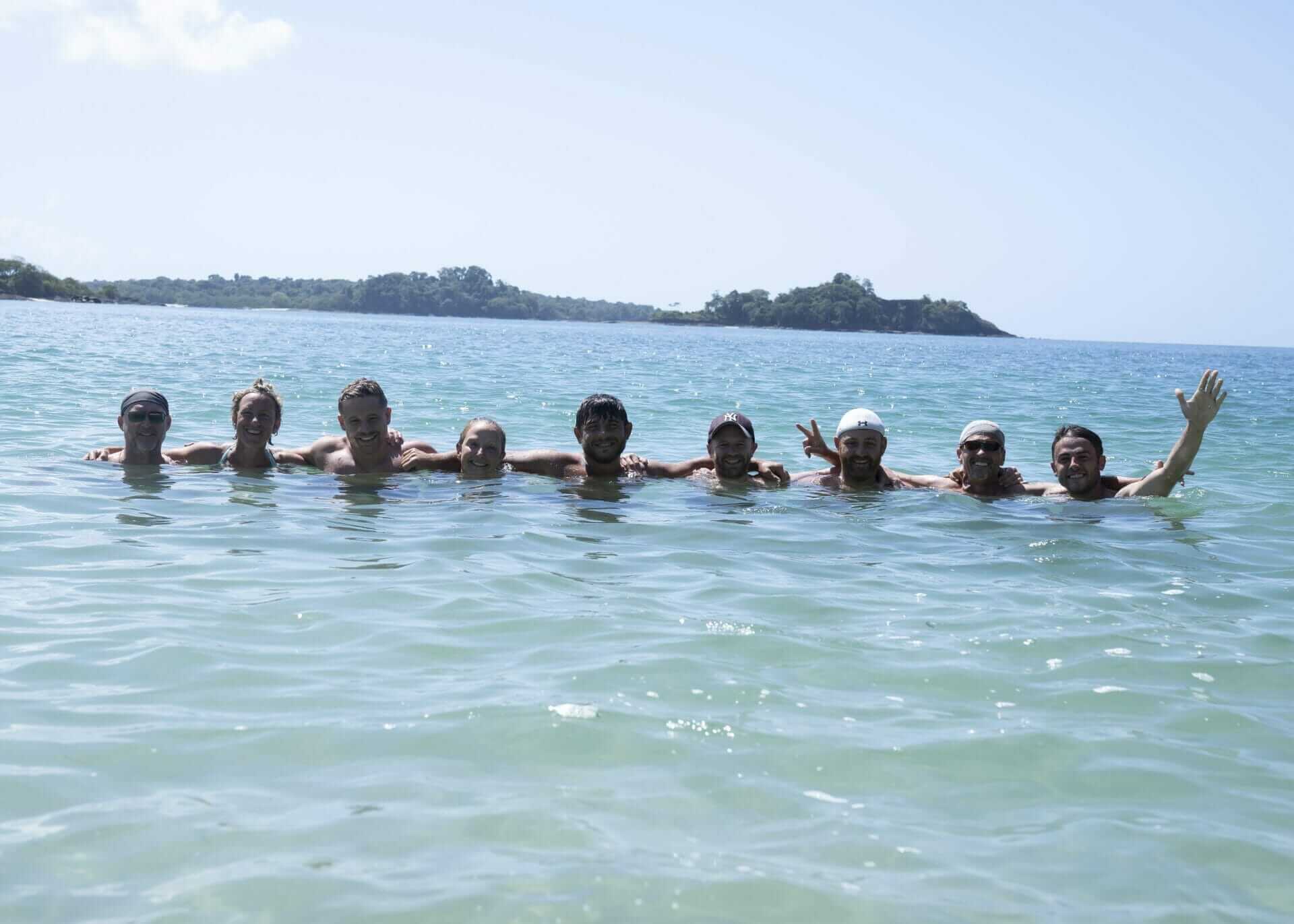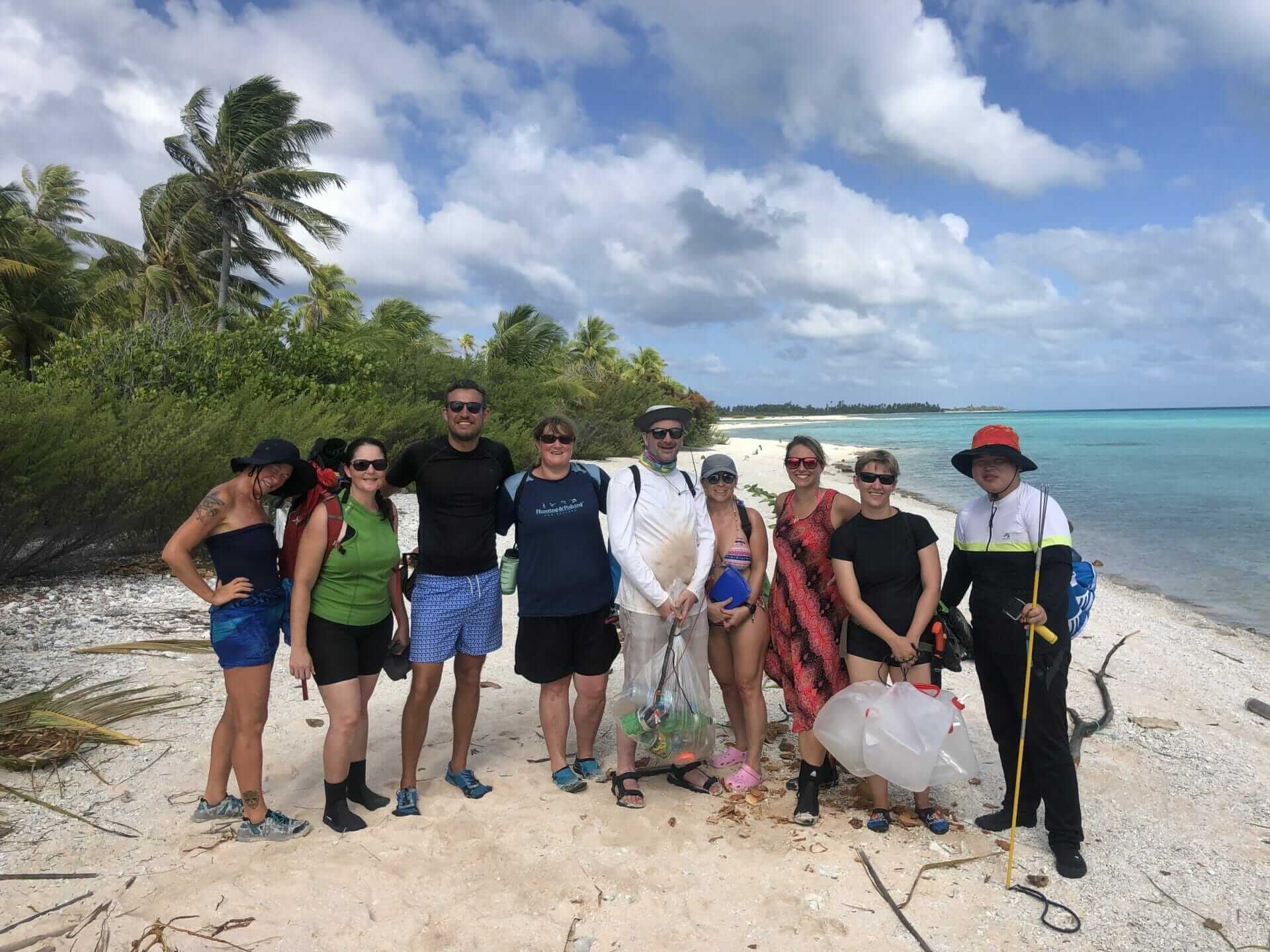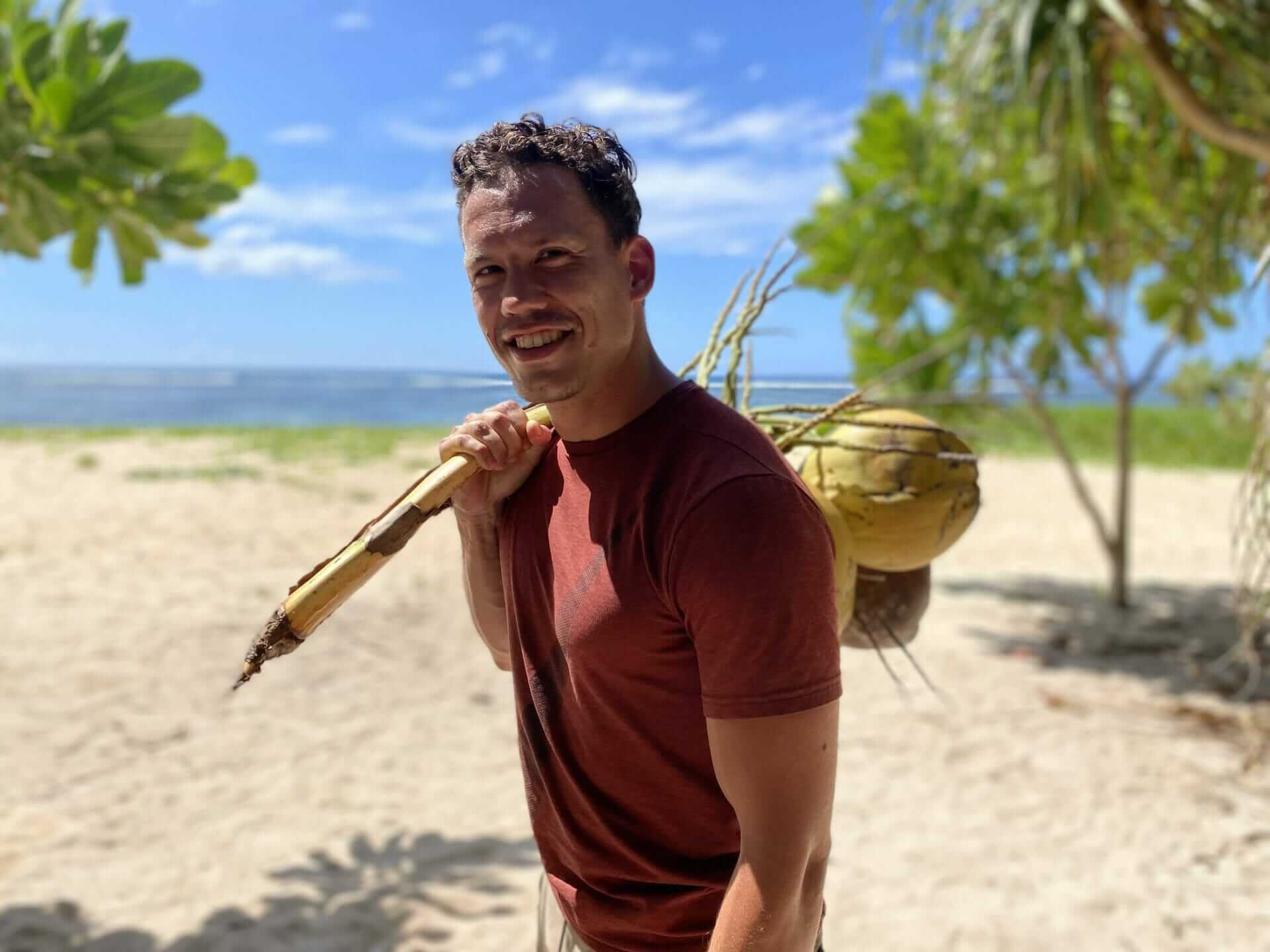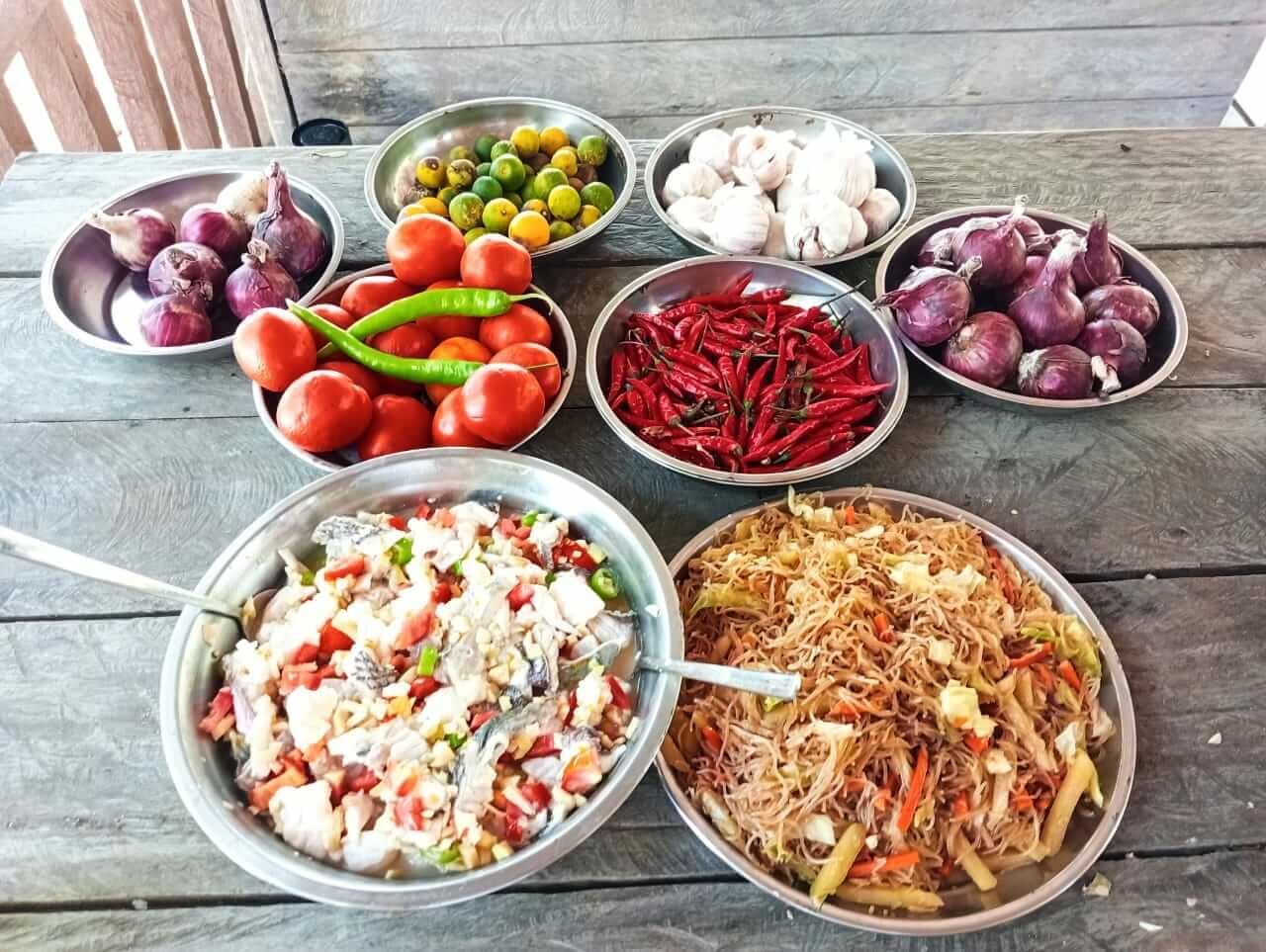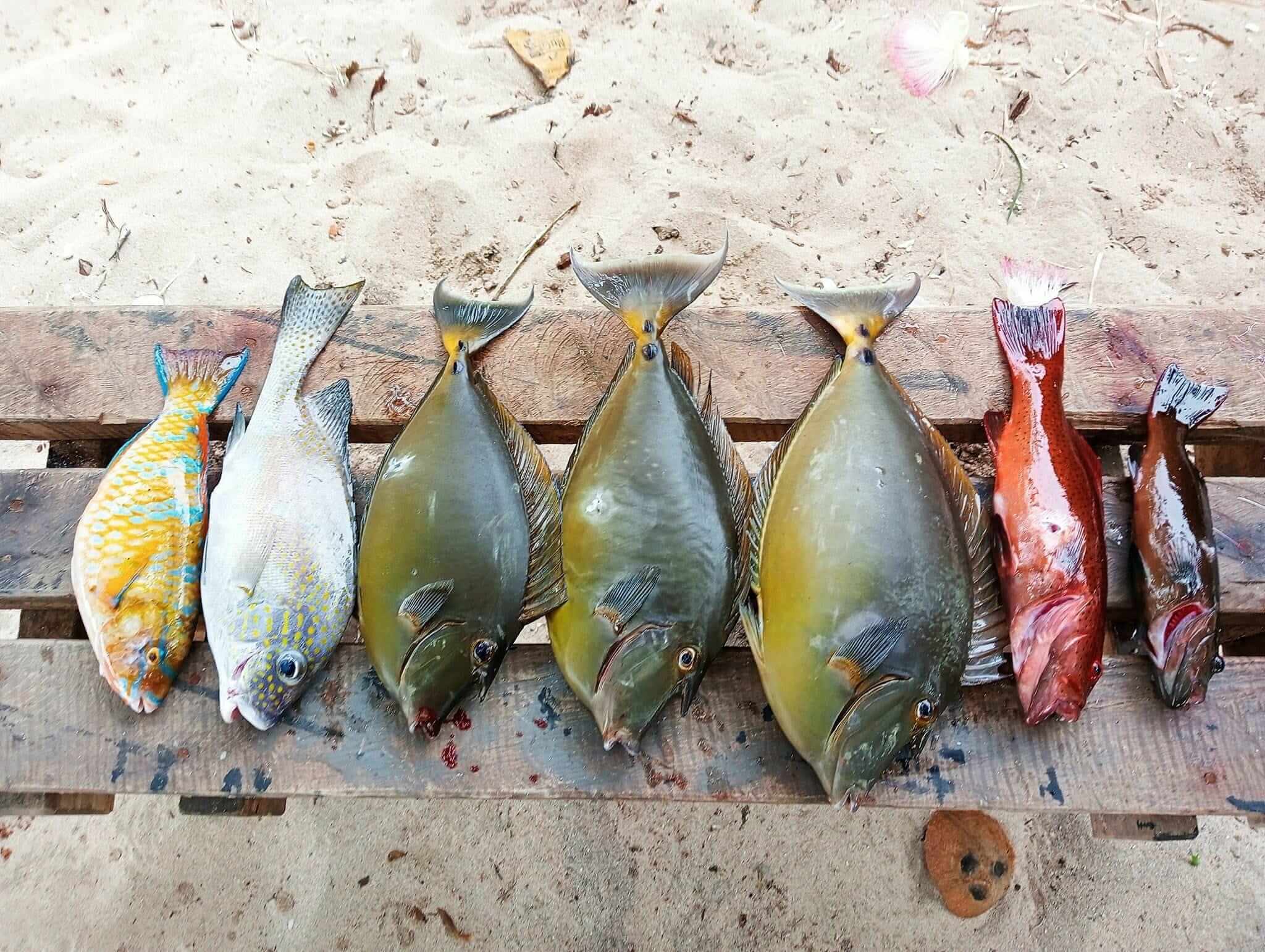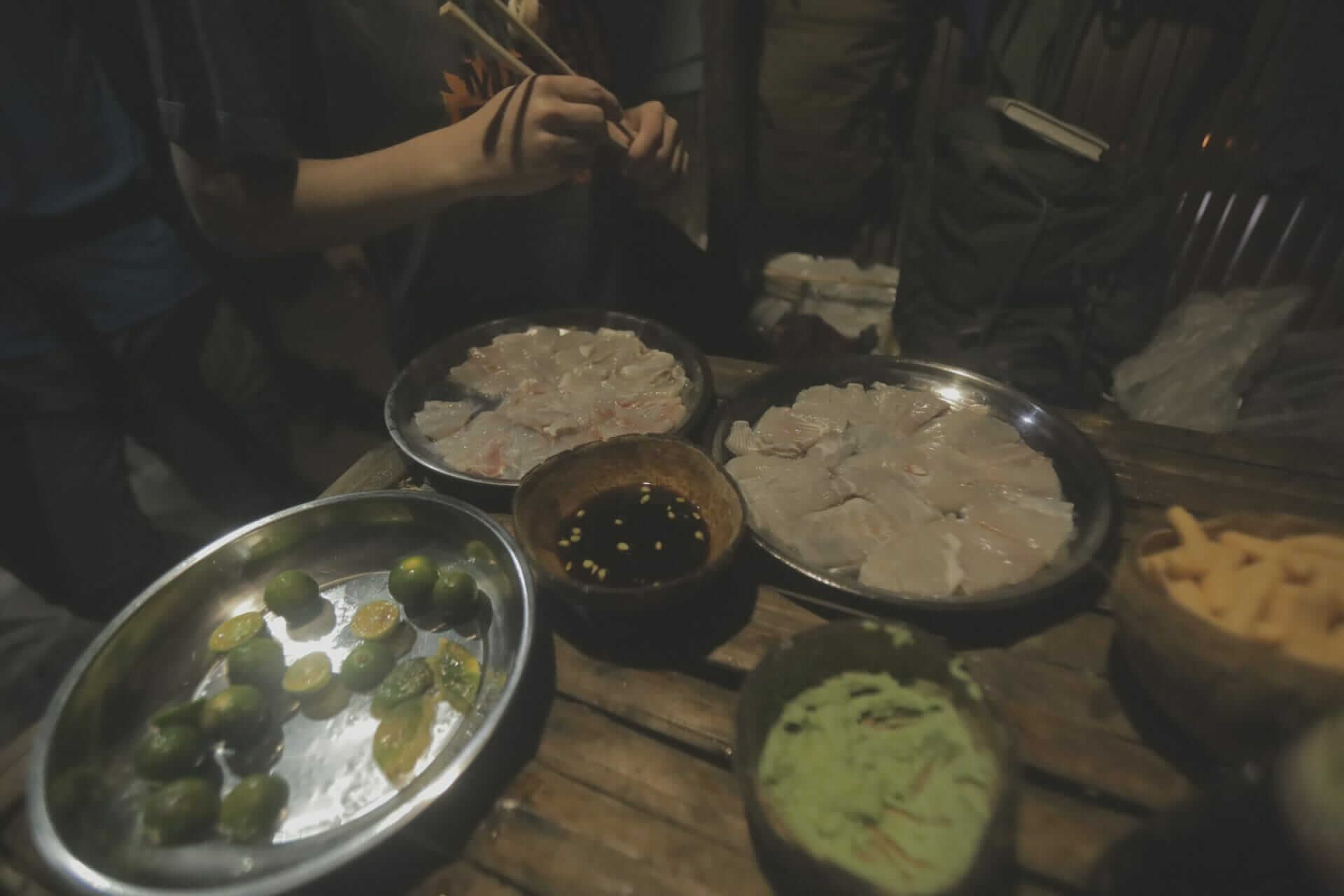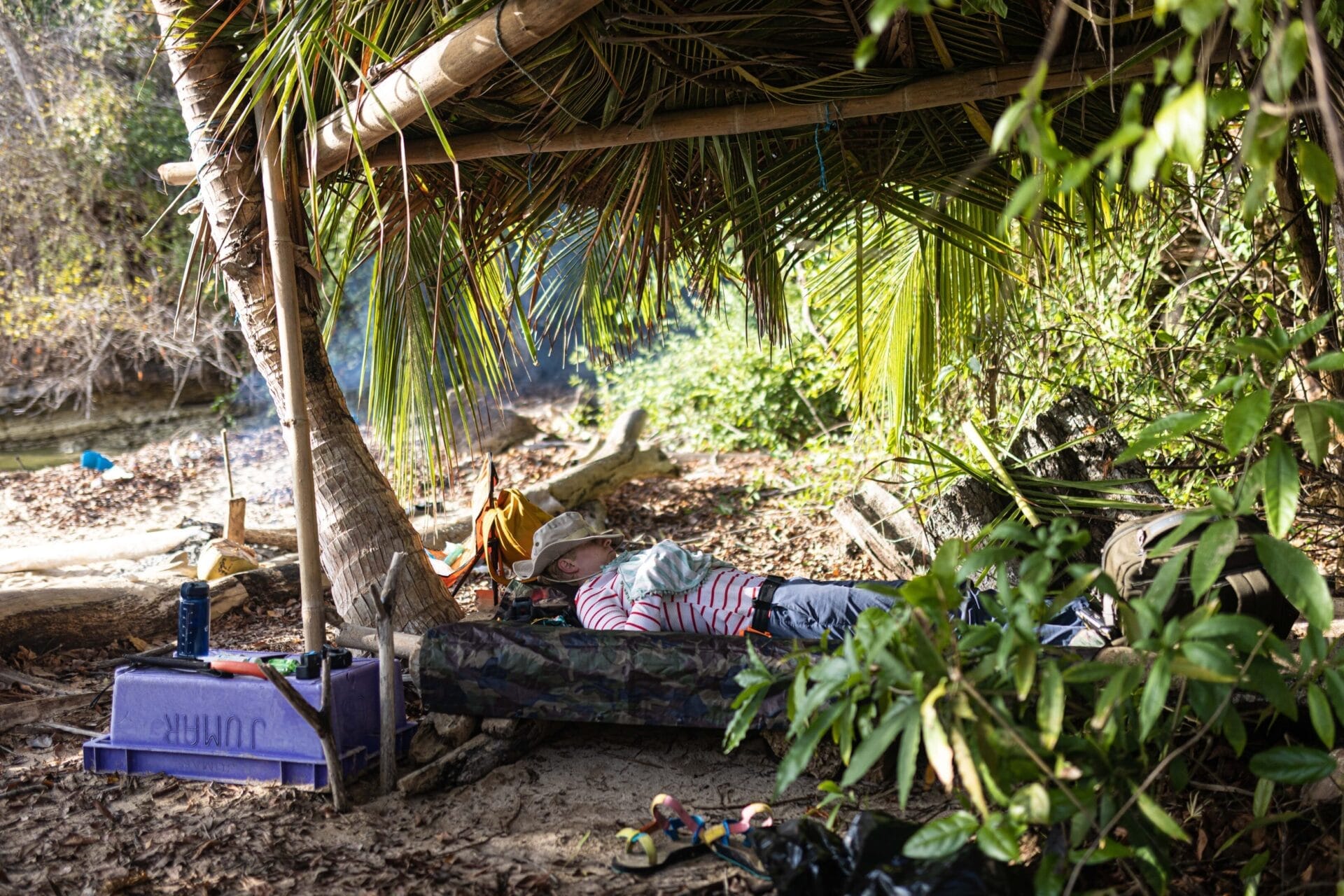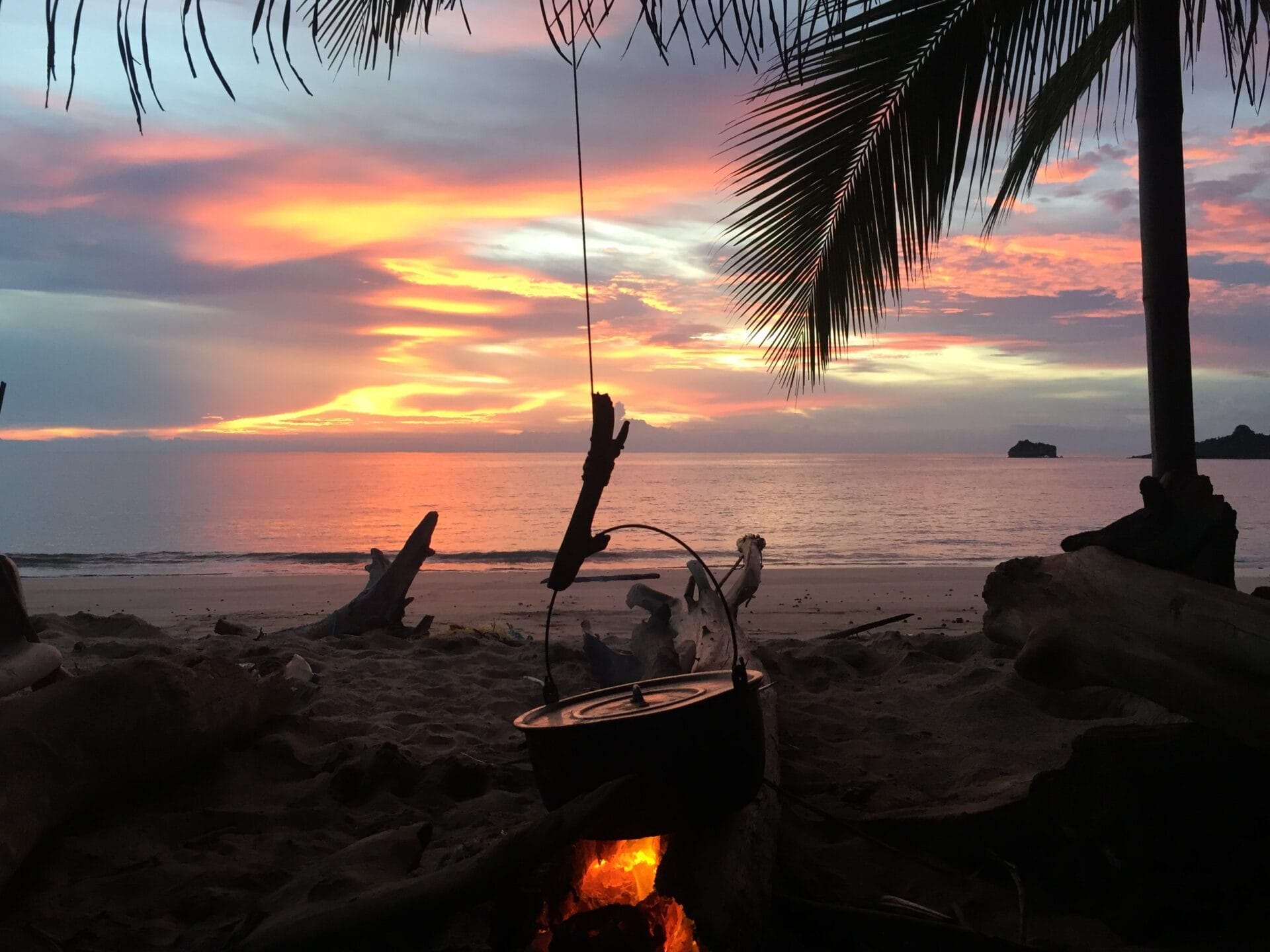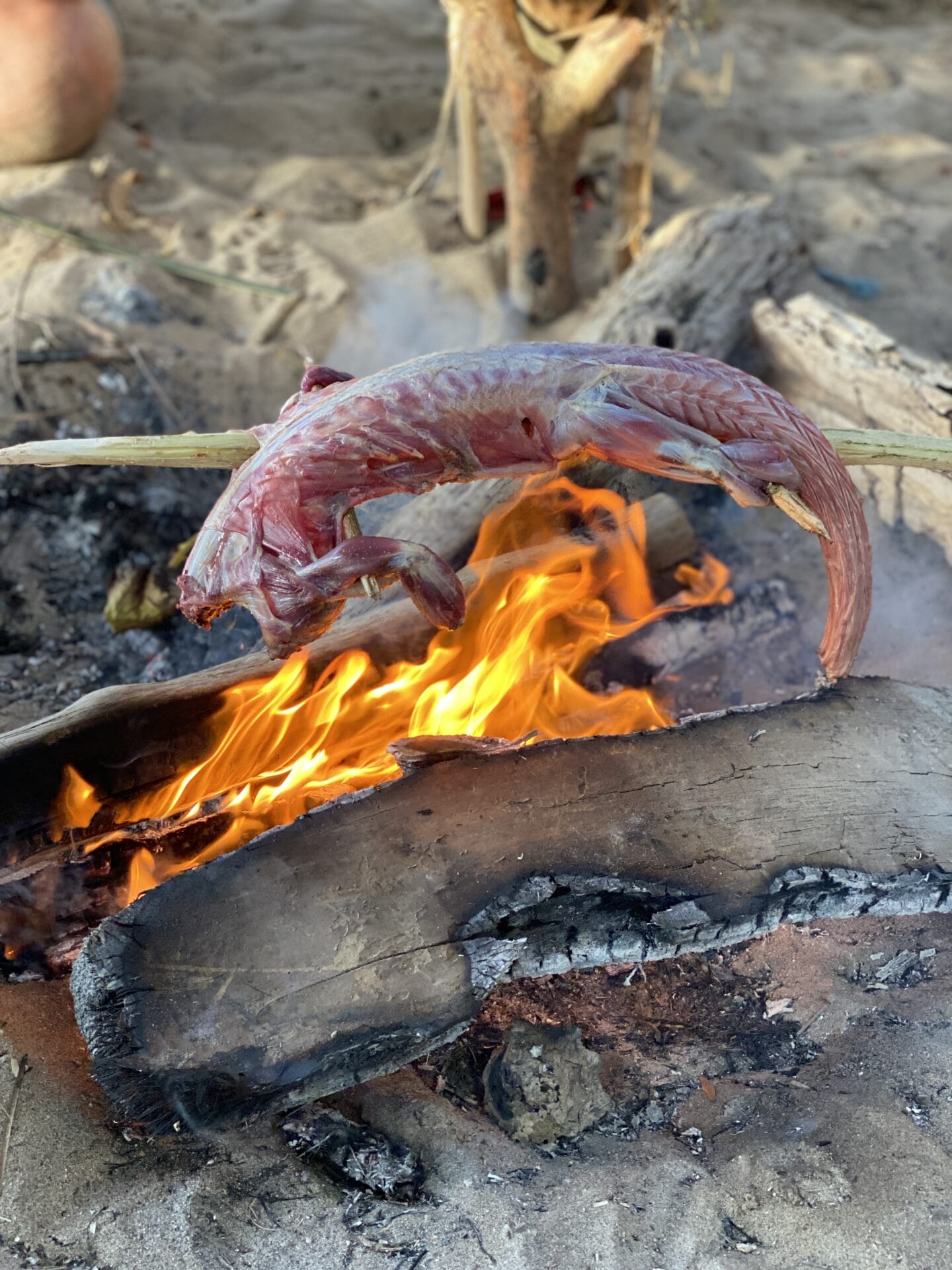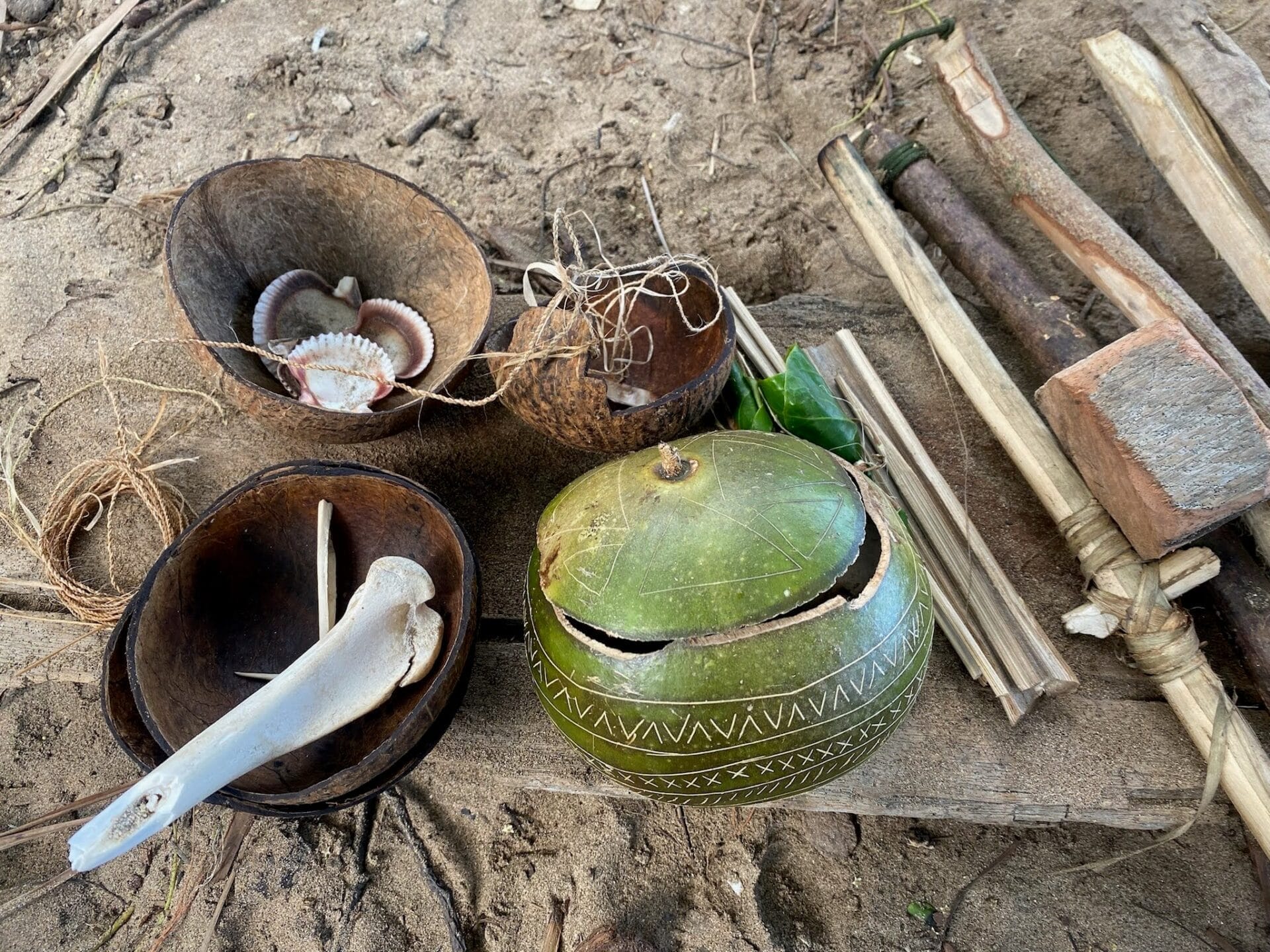Bushcraft Adventure Travel to the Philippines
From:
£2,290
Duration:
7 days
Date:
2 April – 8 April
Max People:
15
Min Age:
18+
Description
Allow your inner survivor to escape to a stunning crescent-shaped island north of Palawan for a truly unique adventure with Tom Williams, winner of the tv series Alone UK and founder of Desert Island Survival.
Join us in outstanding natural beauty, an expansive 800-meter white sand beach fringed by crystal clear waters, and a lush tropical interior of palm and seasonal fruit trees, offering an unparalleled castaway Philippines experience.
You will share the island with the Palawan monitor lizard. Growing up to 2 meters and weighing up to 70kg, this is the second largest lizard in the world after the Komodo dragon, adding a unique aspect to your island castaway in Asia journey.
In addition to the precious palm trees, there are mango, star-fruits, and also plenty of cashew trees which are a joy to roast! (April /May), enhancing your castaway experience with natural delights.
Perfect weather conditions mean almost no biting insects. With almost no sandflies and only mosquitoes in the jungle, most of our castaways avoid getting bitten at all on their expedition, making your survival in the Philippines more comfortable.
Embark on a memorable desert island Philippines adventure, where you’ll not only survive but thrive, learning new skills, embracing the local culture, and creating unforgettable memories in one of the most unique castaway holidays available.
We meet you at the airport and jump on our traditional outrigger boat and head to our magical island where we shall be marooned for the coming 6 days.
Upon arrival, we take a stroll along the expansive beach to explore our new home, consider our resource needs and choose the location for our camp. After selecting a couple of palm trees, between which to string your expedition hammocks, we get to work on building our shelter. This will be our home, where bonds are forged, fire is made, food is cooked and hearts are opened. There’ll be just enough time for a sunset swim before we eat. Belly filled, we’ll might pass around a bottle of rum before heading to your hammock where you’ll make it about 2 pages into a book before drifting off to the sound of rustling palms and lapping waves.
Typically, everyone on the island quickly reconnects with their circadian rhythm and rises a little after sunrise. After a breakfast we spend the morning learning the most quintessential primitive skill, how to make fire by friction. After the easiest method of fire by flint, you will graduate to whittling your own bow drill set before we teach you hand drill and the bamboo fire saw. We will spend the afternoon catching our supper off the beach. Although you won’t be blessed with a speargun during the survival phase, you can also try your hand at spearing dinner for the team. Learn how to duck dive, how to hold your breath for longer, and how to hunt underwater. You will also learn how to open coconuts. Then we gather around the fire to feast on Thai fish curry made in a bamboo cooking pot with fresh coconut milk.
Today is all about how you are going to eat. We will look at all the different techniques one can use to find food on a desert island; Including what fruits and plants are safe to eat, and where to find shellfish. The ocean is our larder and primary source of nutrition. You’ll work together to make a primitive hand-line, catch, prepare and cook fish.
We will spend the afternoon exploring with a paddle board and do yoga on the beach. To finish the day we will open some green coconuts, harvested from palms on the island, and have fresh pina-coladas. Preparing you nicely for an evening of tribal-fancy-dress and beach games.
Life on the island slows down. Disconnecting from wifi and phone, you will find yourself thinking about the outside world less and less. Don’t worry about not getting space for yourself. Everyday from 12- 2pm is your time; for a siesta in your hammock, reading a book or throwing a frisbee. Today we will focus on fishing, slingshots and hunting and in the afternoon we can enjoy yoga on the beach. Tonight we prepare, cook and eat as a tribe. A bottle of rum and some roasted marshmallows see us off to bed.
This is it, the fire is out, the instructors are gone; it’s just you and your fellow Castaways, alone in this picturesque tropical wilderness. You are left with limited equipment and have to work together. Now is time to put into practice your newfound skills and apply your ingenuity to survive. What is your greatest priority? Do you build your shelter first, or start a fire? During the first day, the reality of survival sinks in, new highs and lows are encountered. During these days; hunger, thirst, and discomfort are offset by the euphoria of success starting a fire or finding food. Will you survive, or thrive?
Nothing will ever look quite so good as our rescue boats arriving at 8am, laden with ice-cold drinks. We take a speedy 45 min boat journey to the lovely hotel on Coron. You and your fellow castaways will enjoy one of the best showers of your life, after enjoying a huge breakfast.
In the afternoon, we will explore the Lake Kayangan.
That night we head out for a survival dinner.
The expedition ends with a last breakfast at the hotel all together.
First off, one of the most important considerations is travel time from your home country. Then you should consider whether domestic travel is required when you arrive. We love the website flight connections to help with travel time.
Philippines – One domestic flight required
ou will initially need to travel to Manilla (MNL), the capital of the Philippines. You can find direct flights from as far afield as London, New York, Toronto, LA, San Francisco, Sydney and Auckland. From Manila, you need to take a domestic flight to Busuanga/Coron (USU), its normally best to book this flight leg separately. Typically your domestic flight will be the day after you arrive in the Philippines so an overnight in a hotel in Manilla will likely be required.
Please arrive in Busuanga/Coron (USU) around 11am so we can pick you up from the airport.
We recommend you download Hopper’ for your phone and enter your dates. They will tell you when the best time to book your flights is before the price creeps up, typically 90 days prior is optimum.
We also love using flight connection maps for finding your best route from where you live.
Google flights is our favourite flight search engines, however, we always recommend booking directly with the airline once you have found your flights as you will have a preferential cancellation policy and better upgrade potential.
Check out our Philippines Travel Guide for more information about the destination or check out our blog for Philippines related articles.

